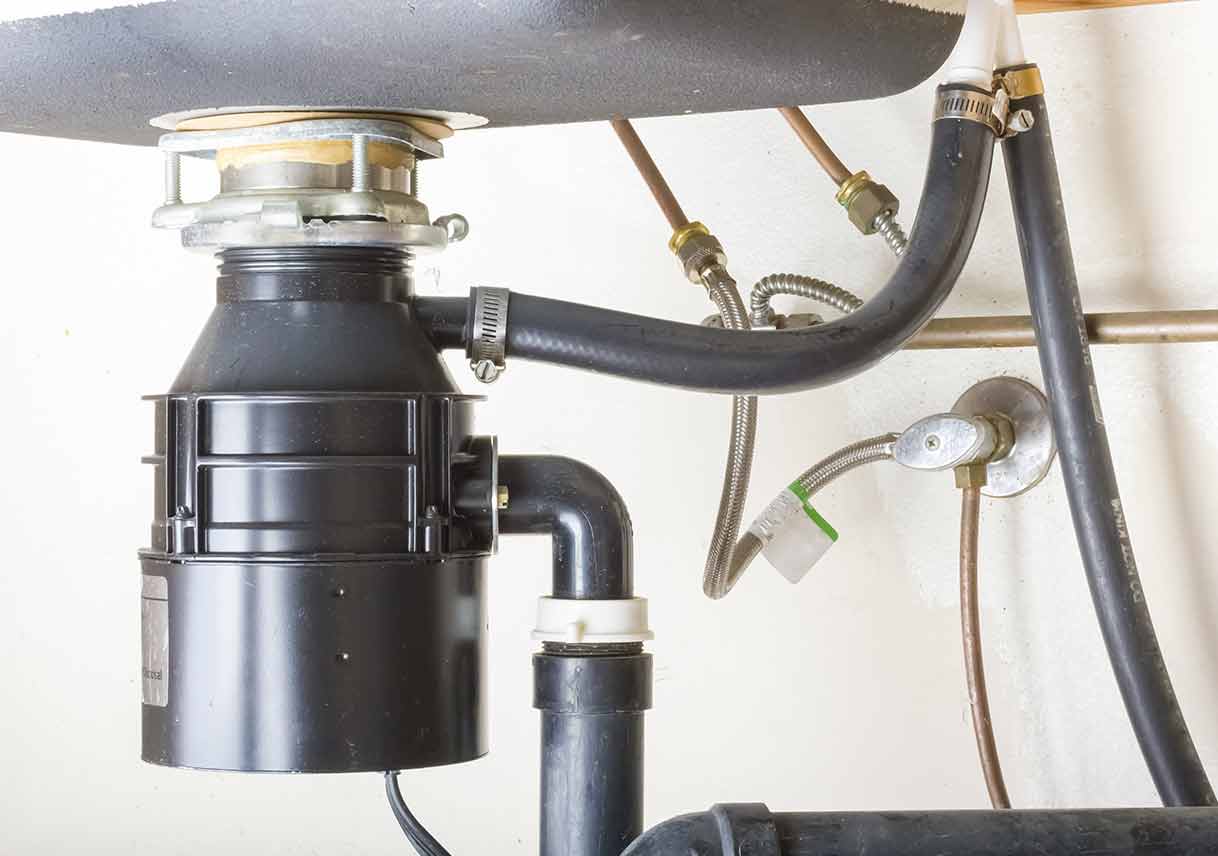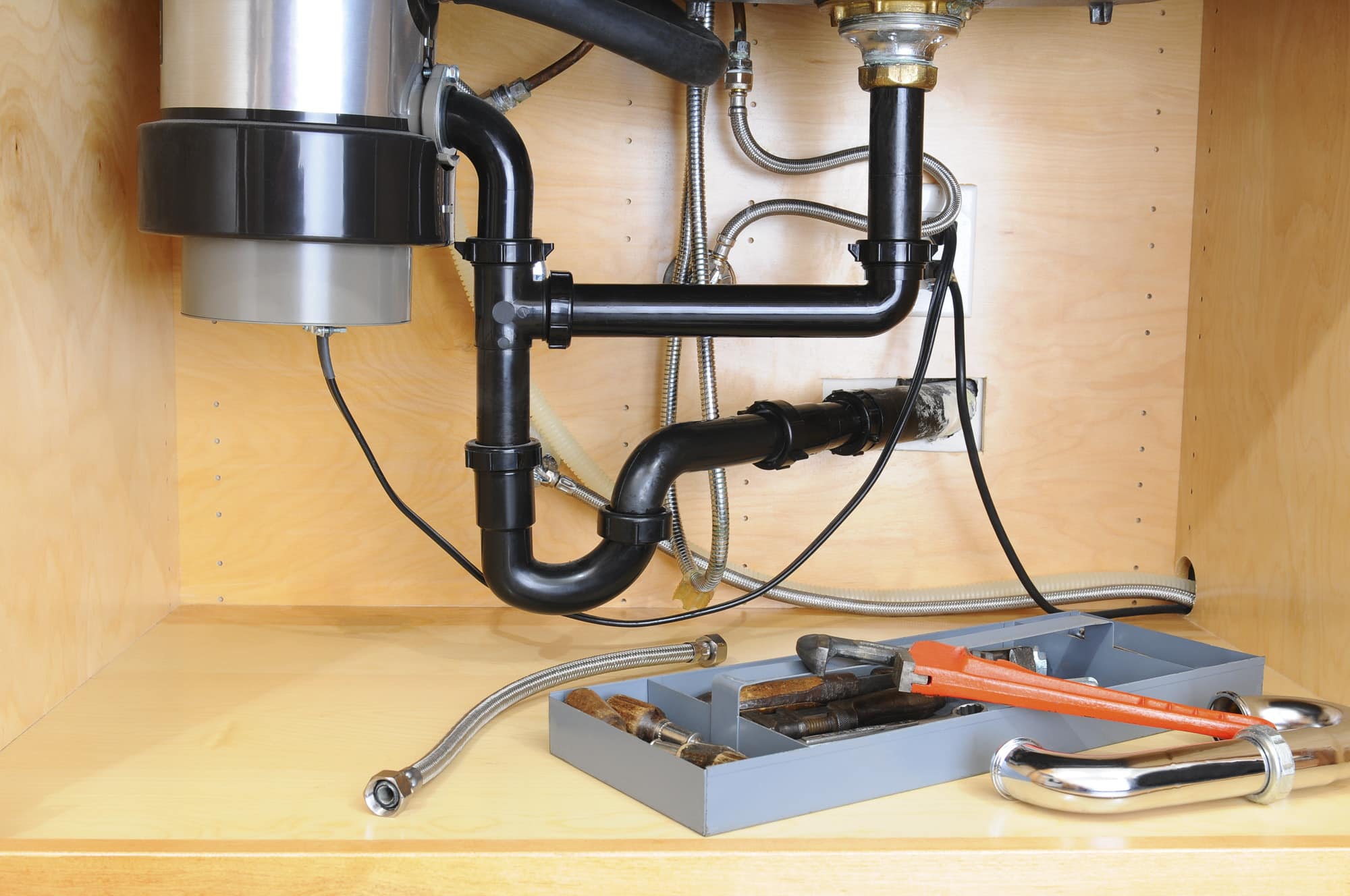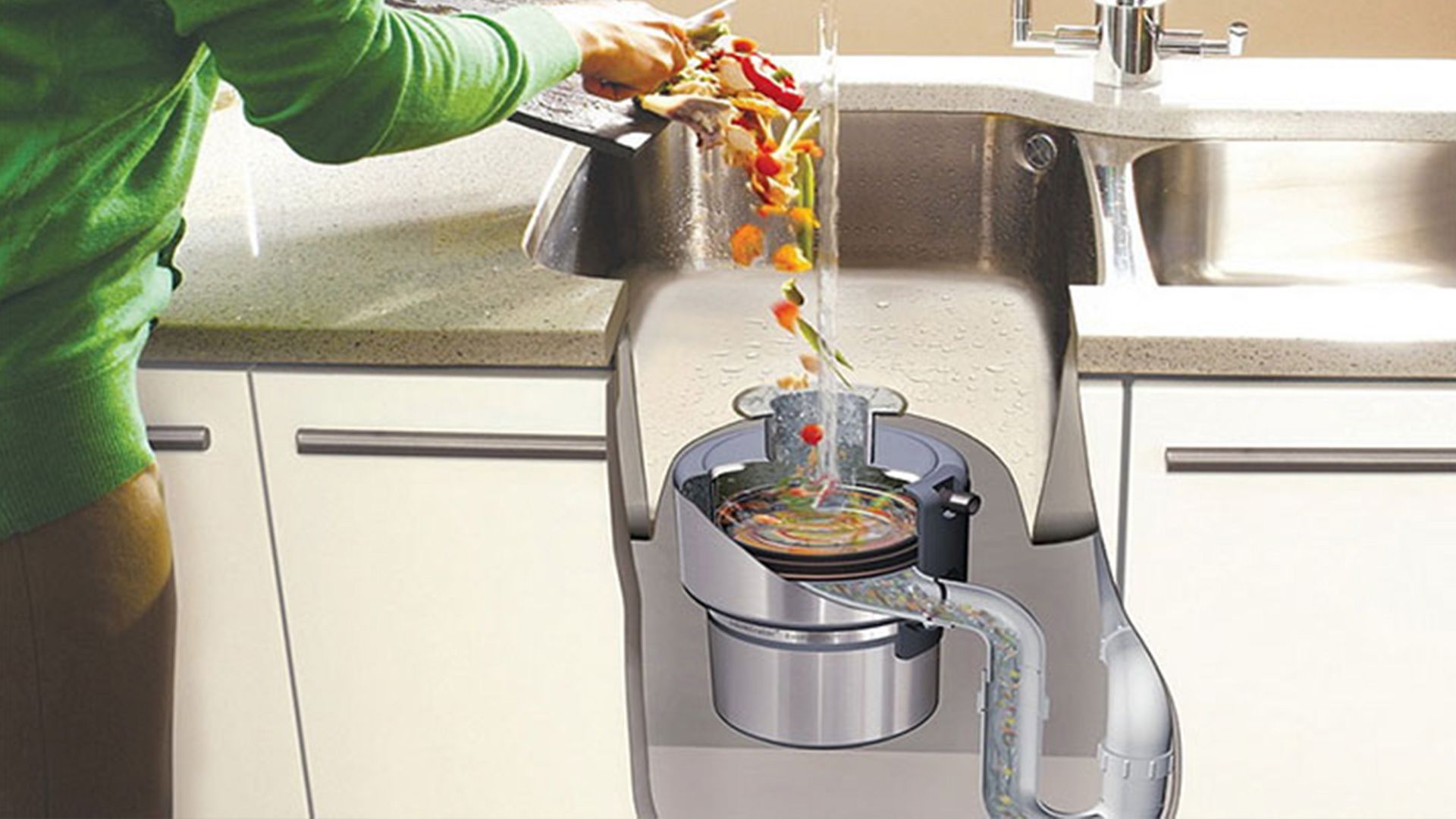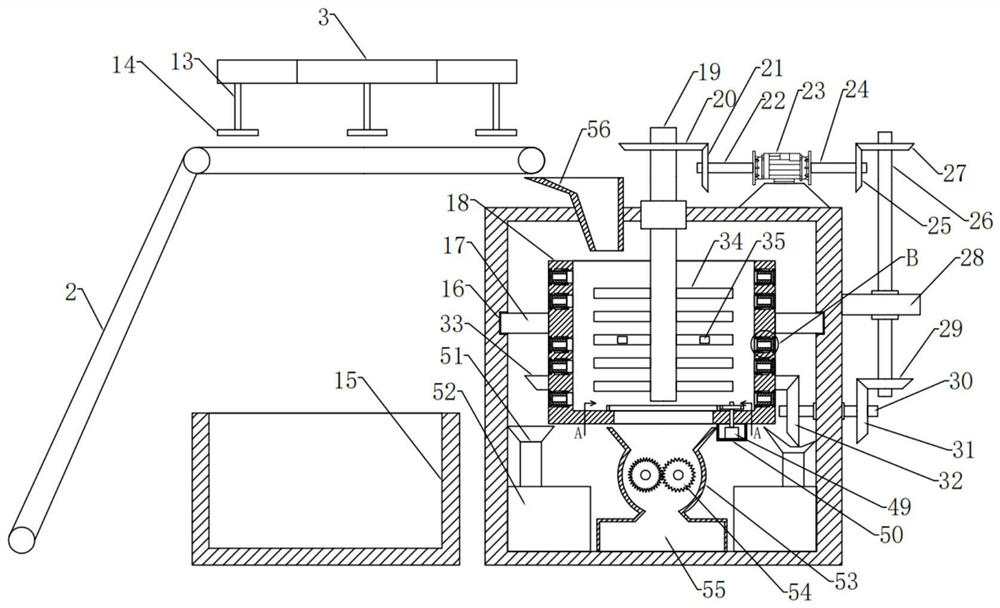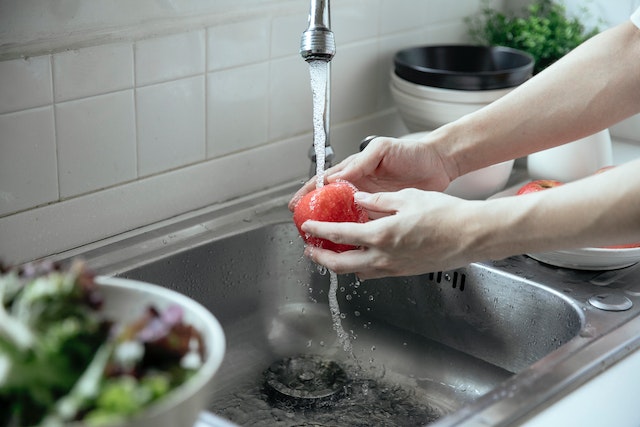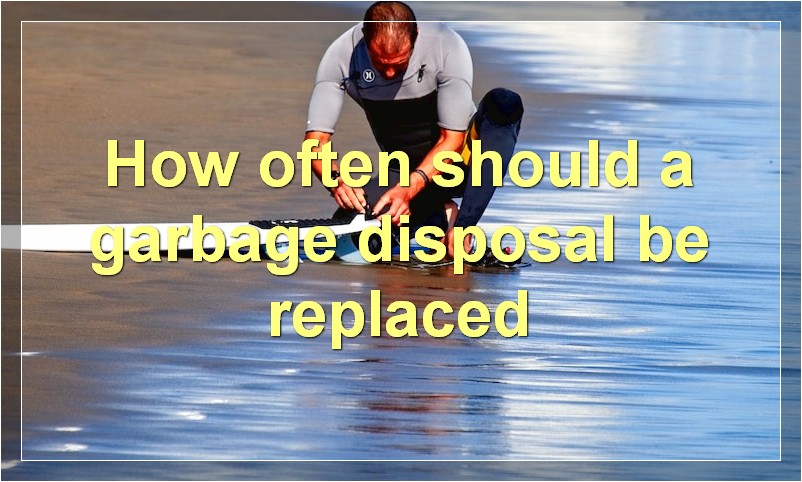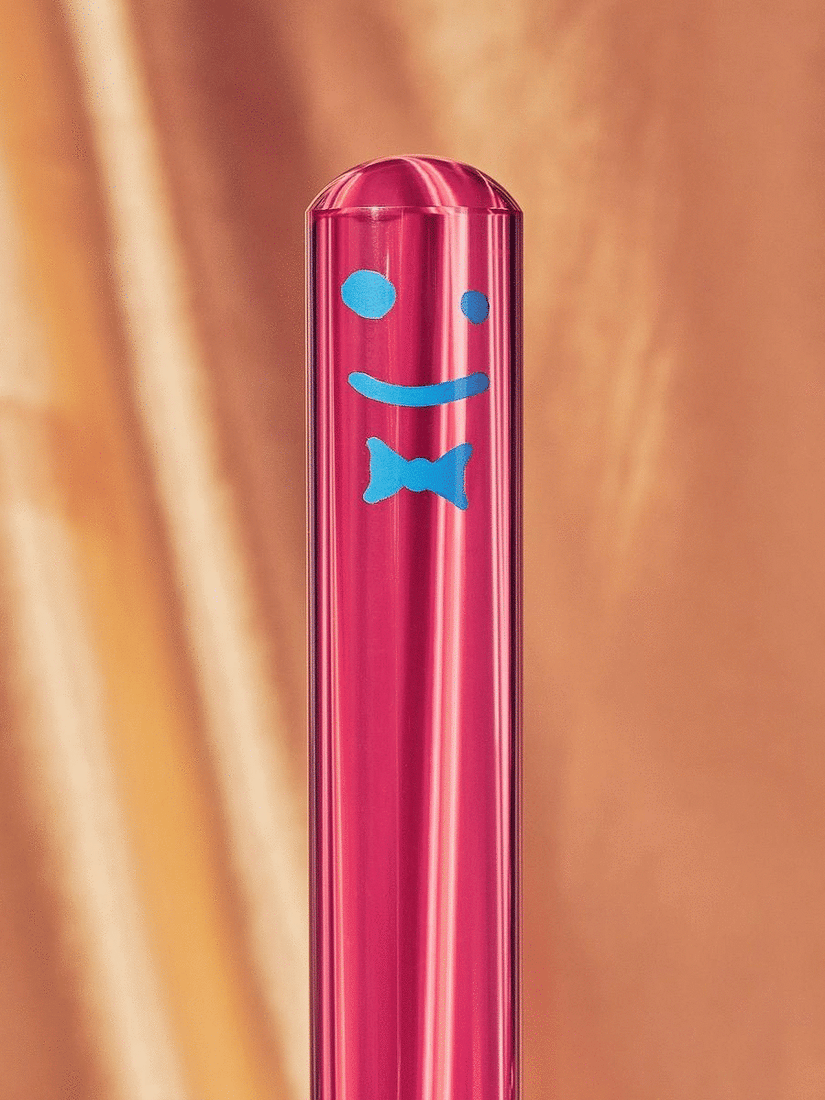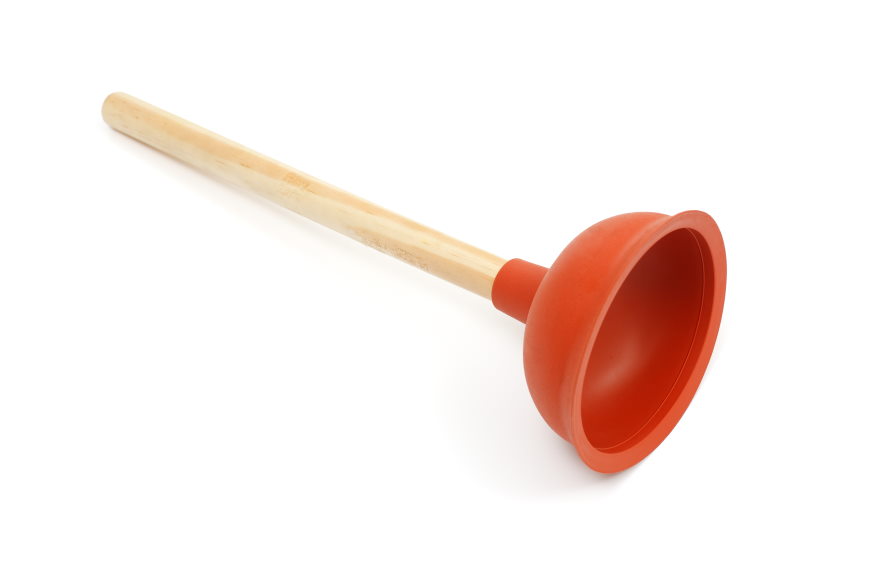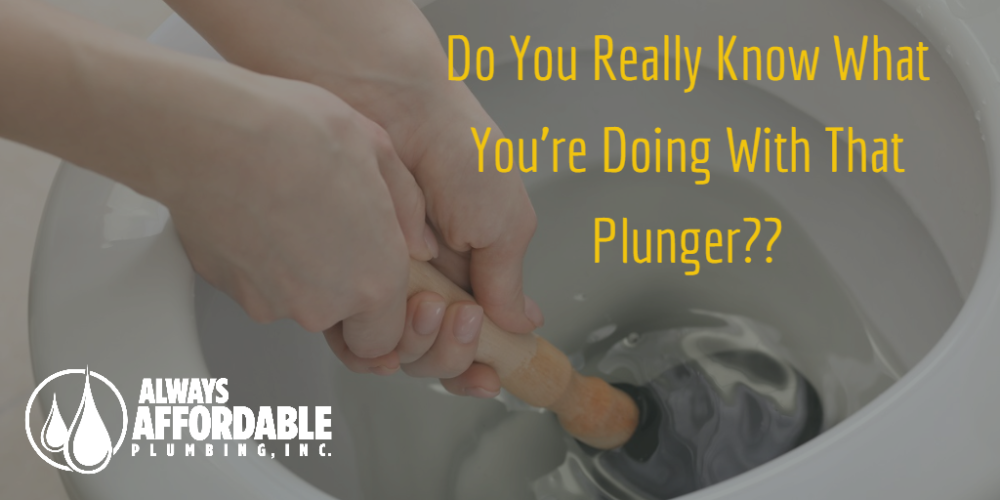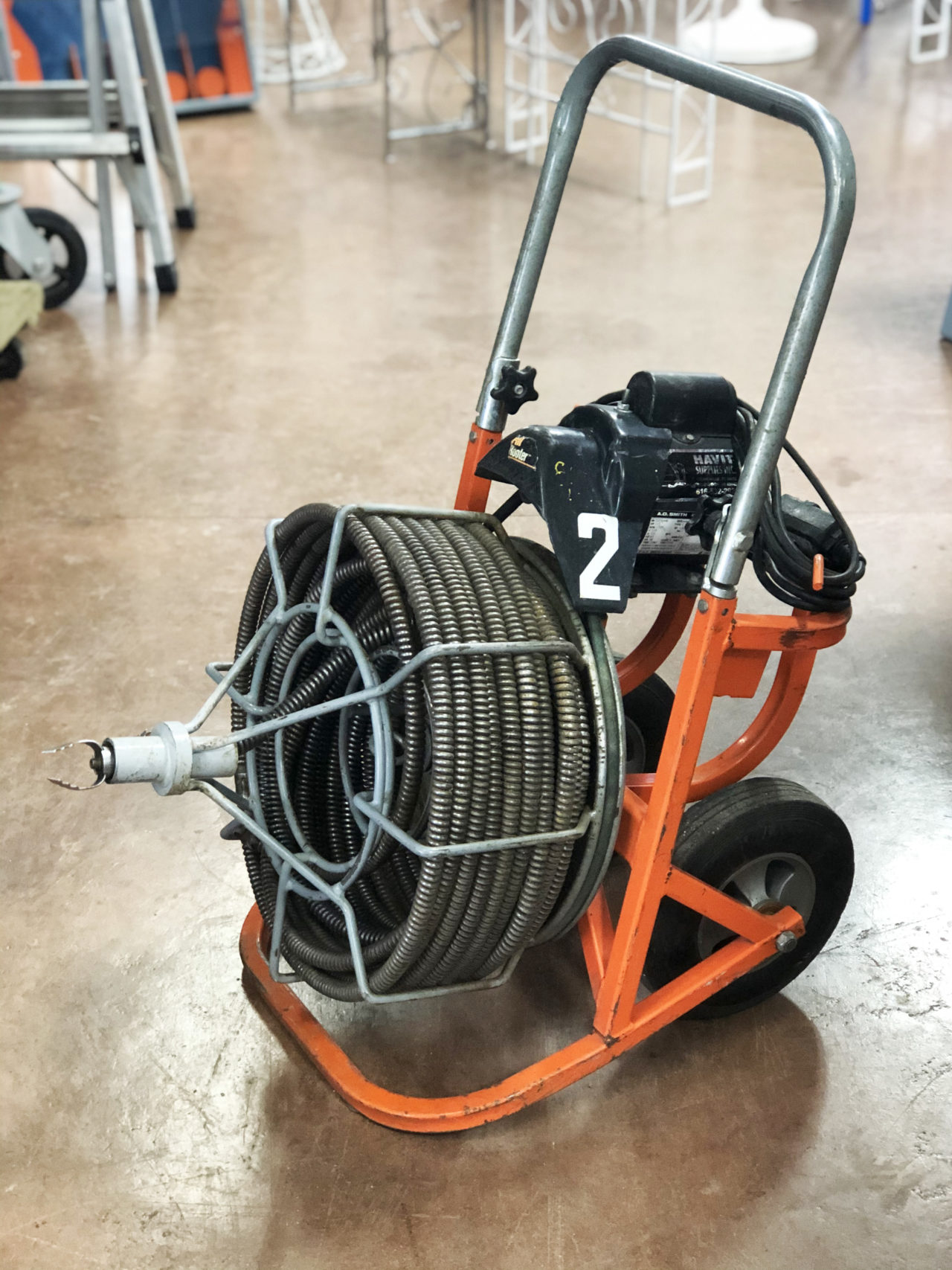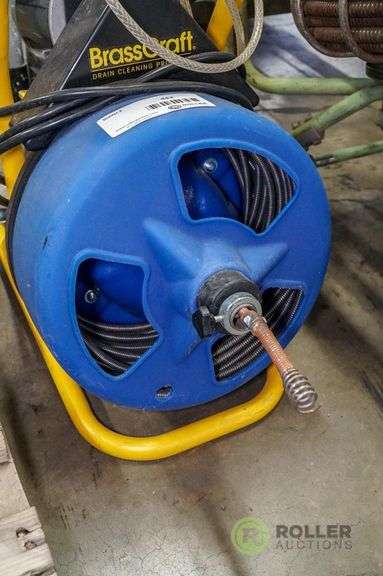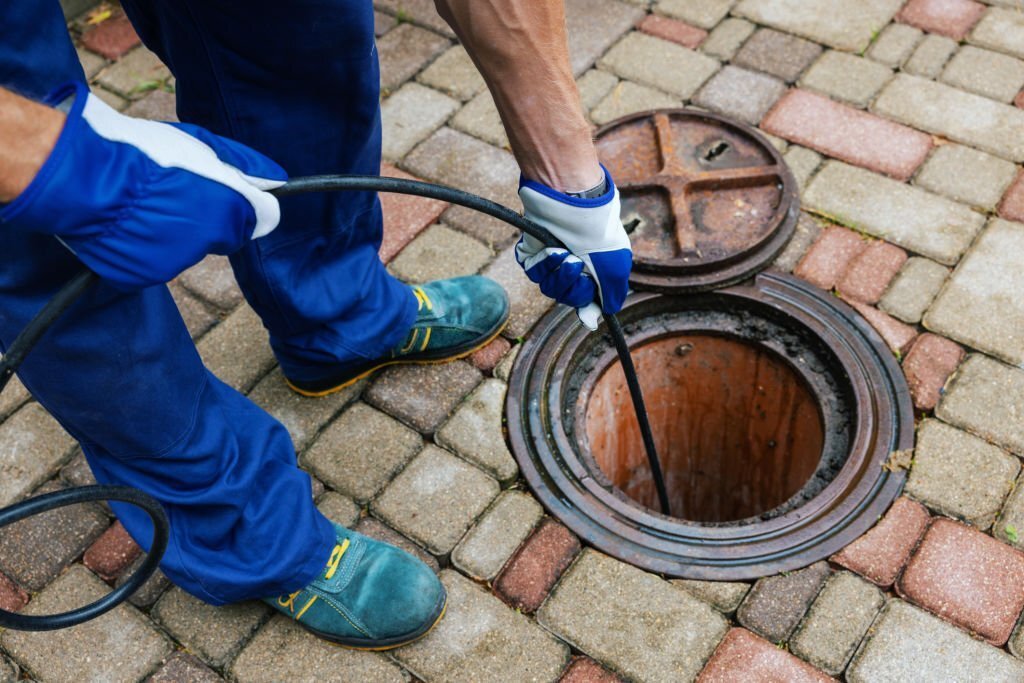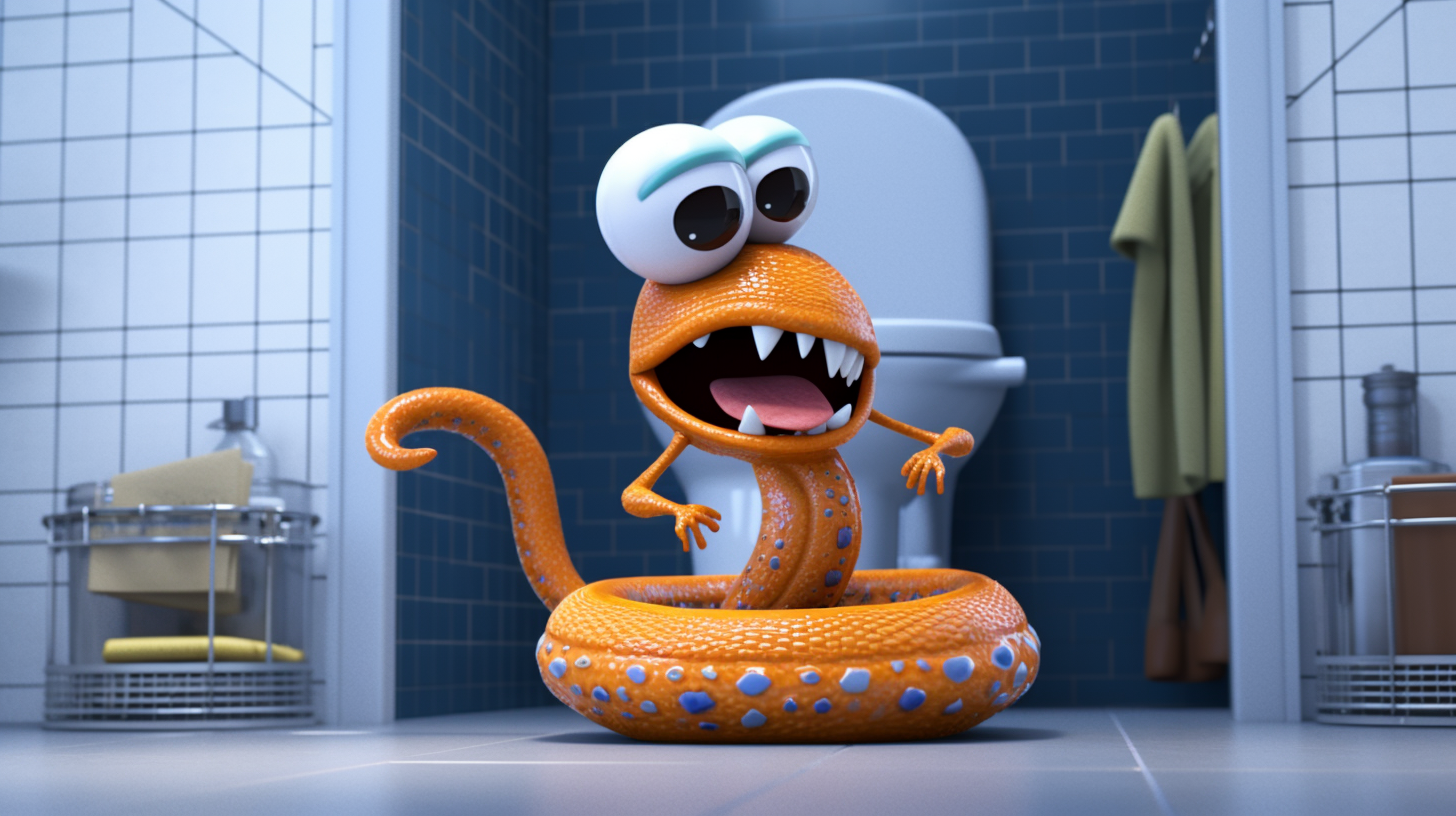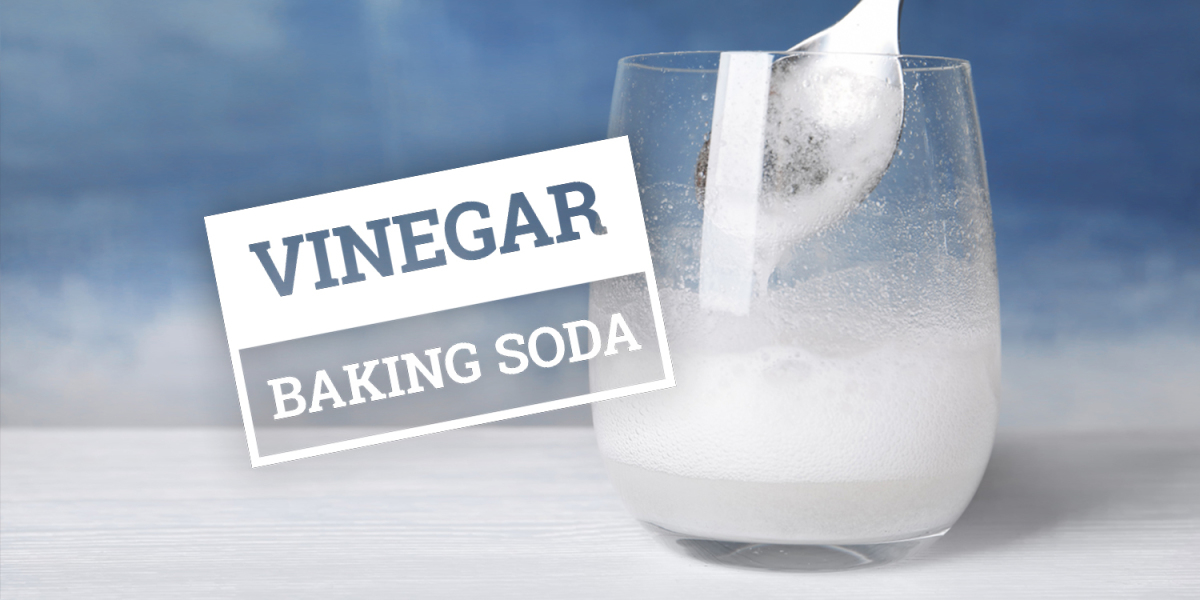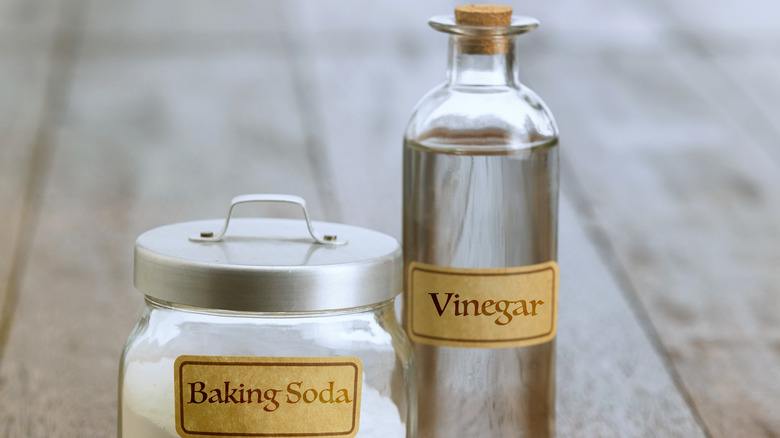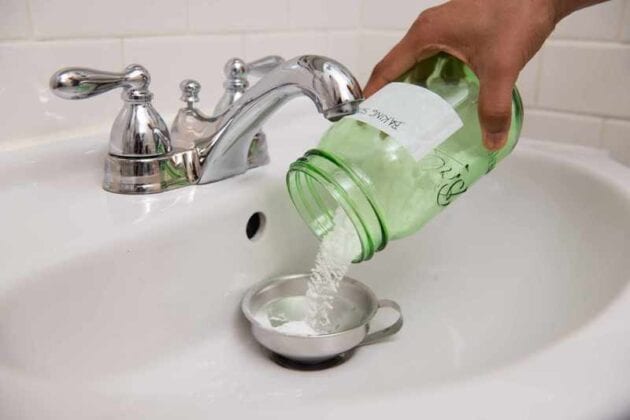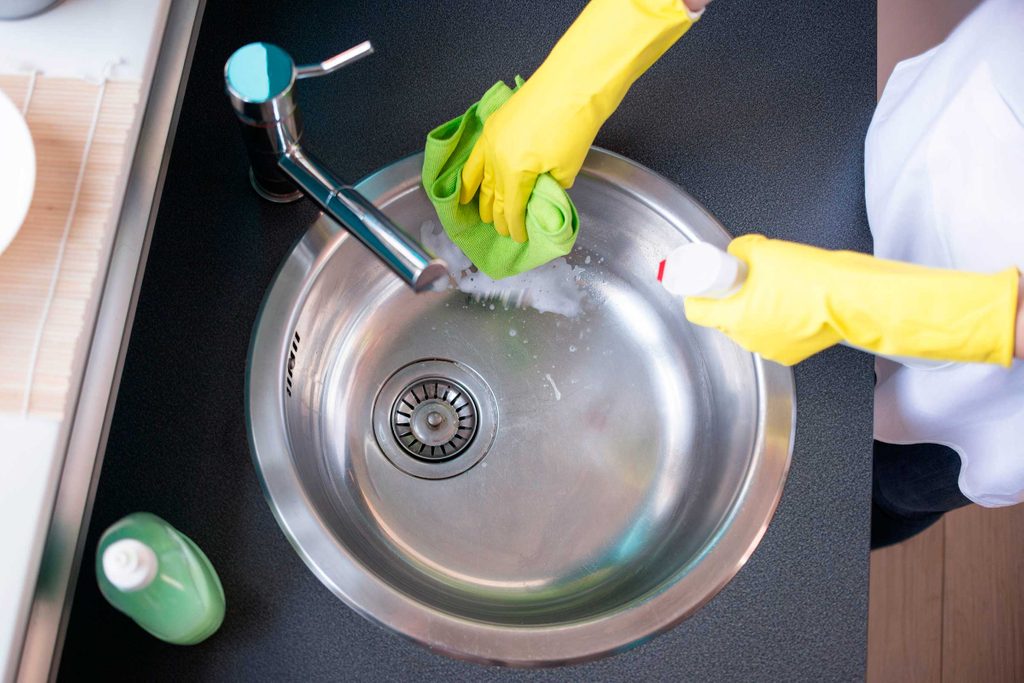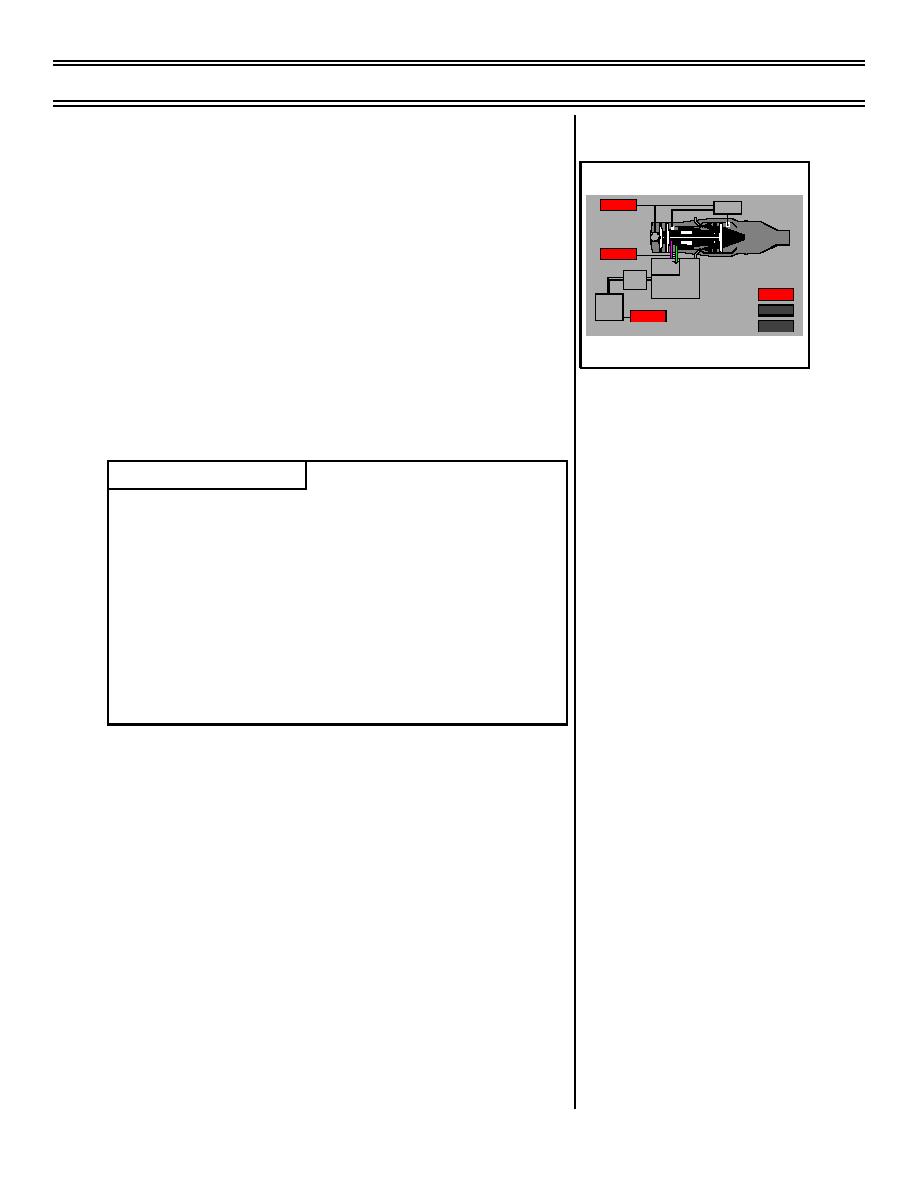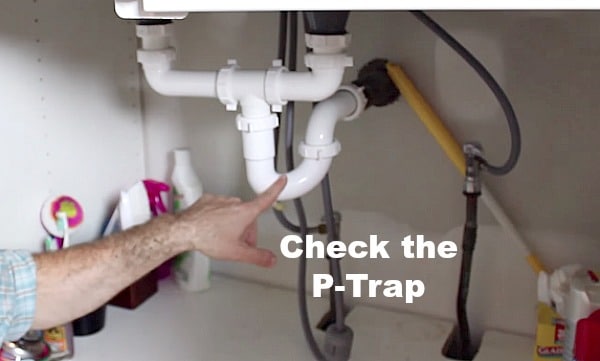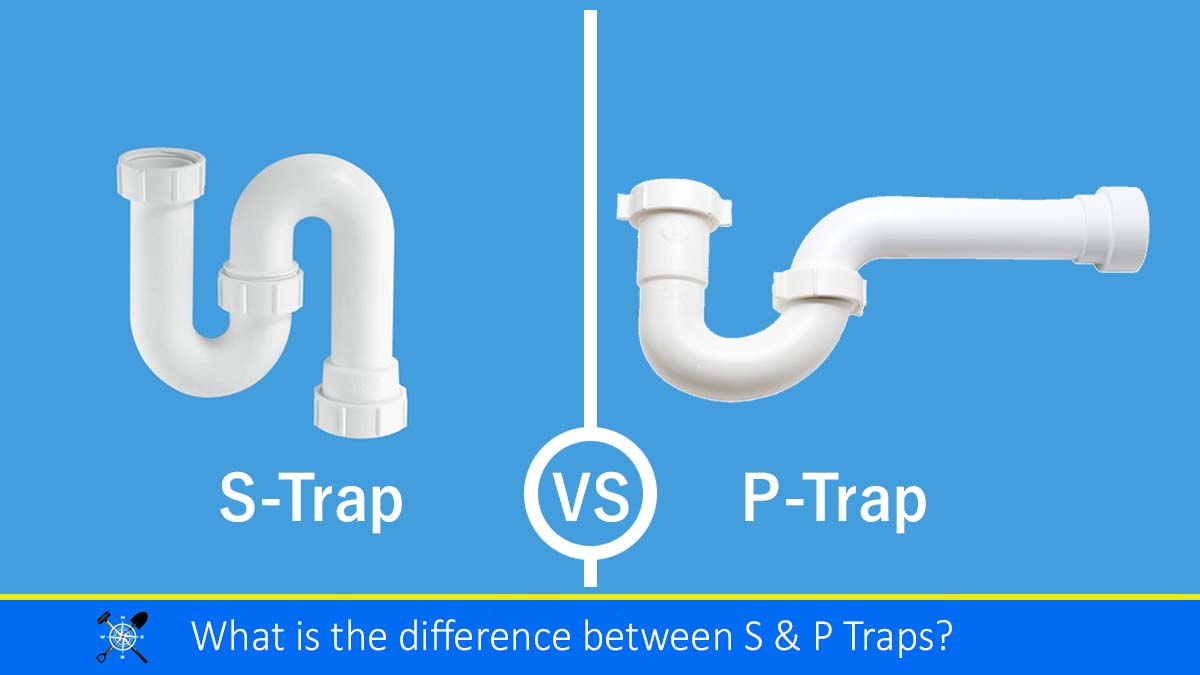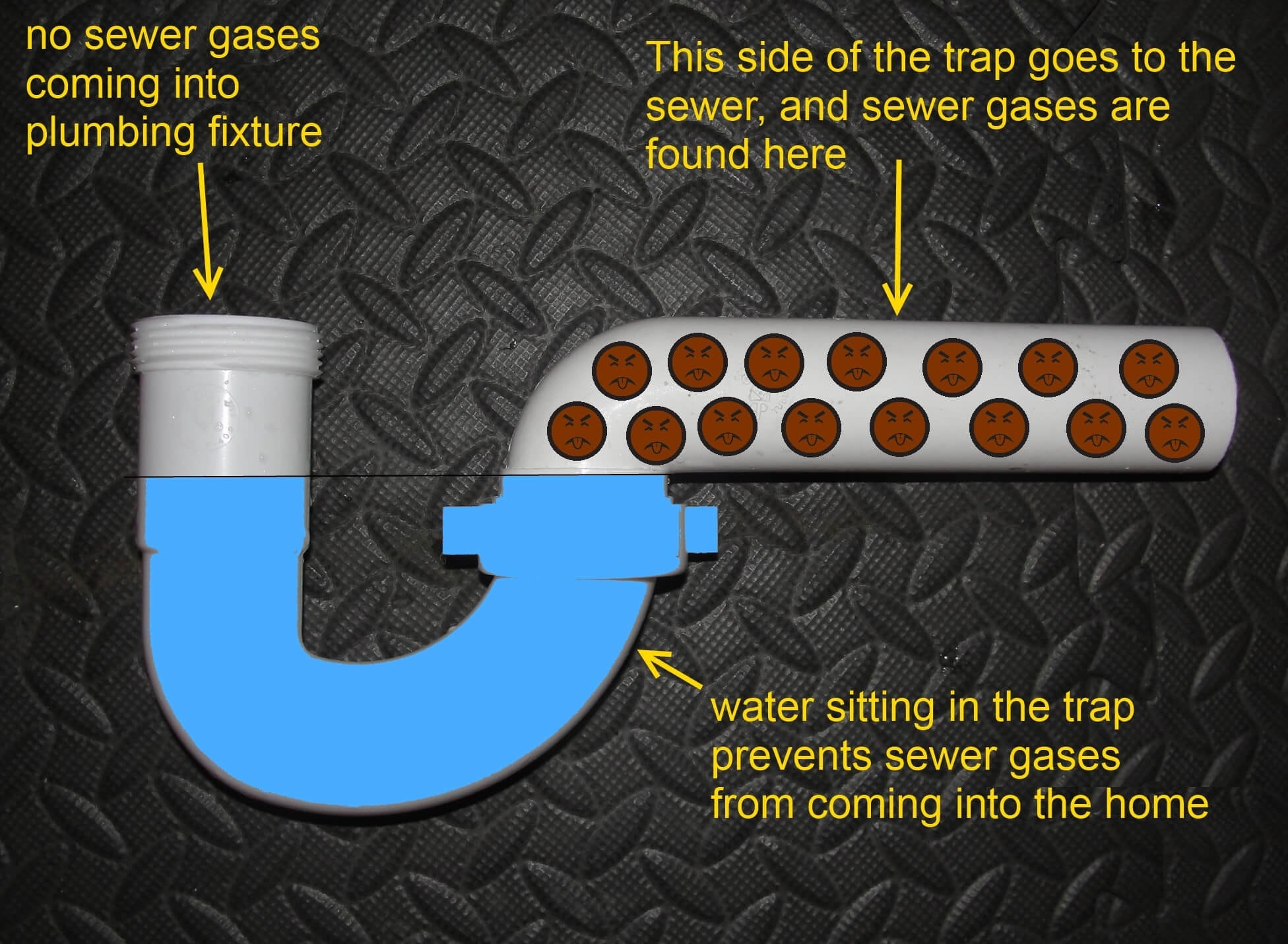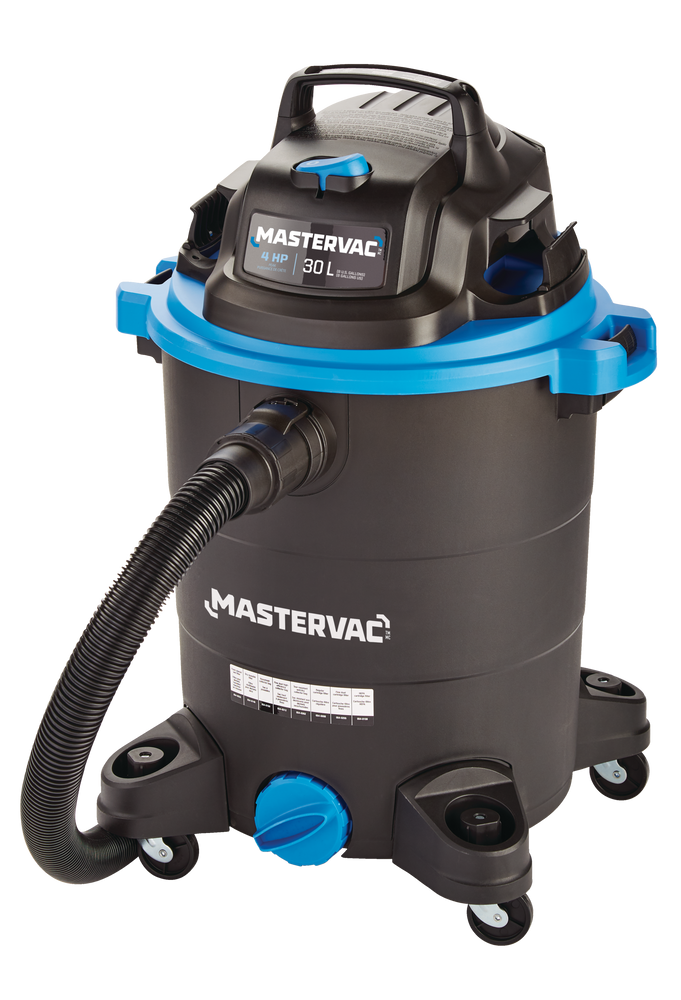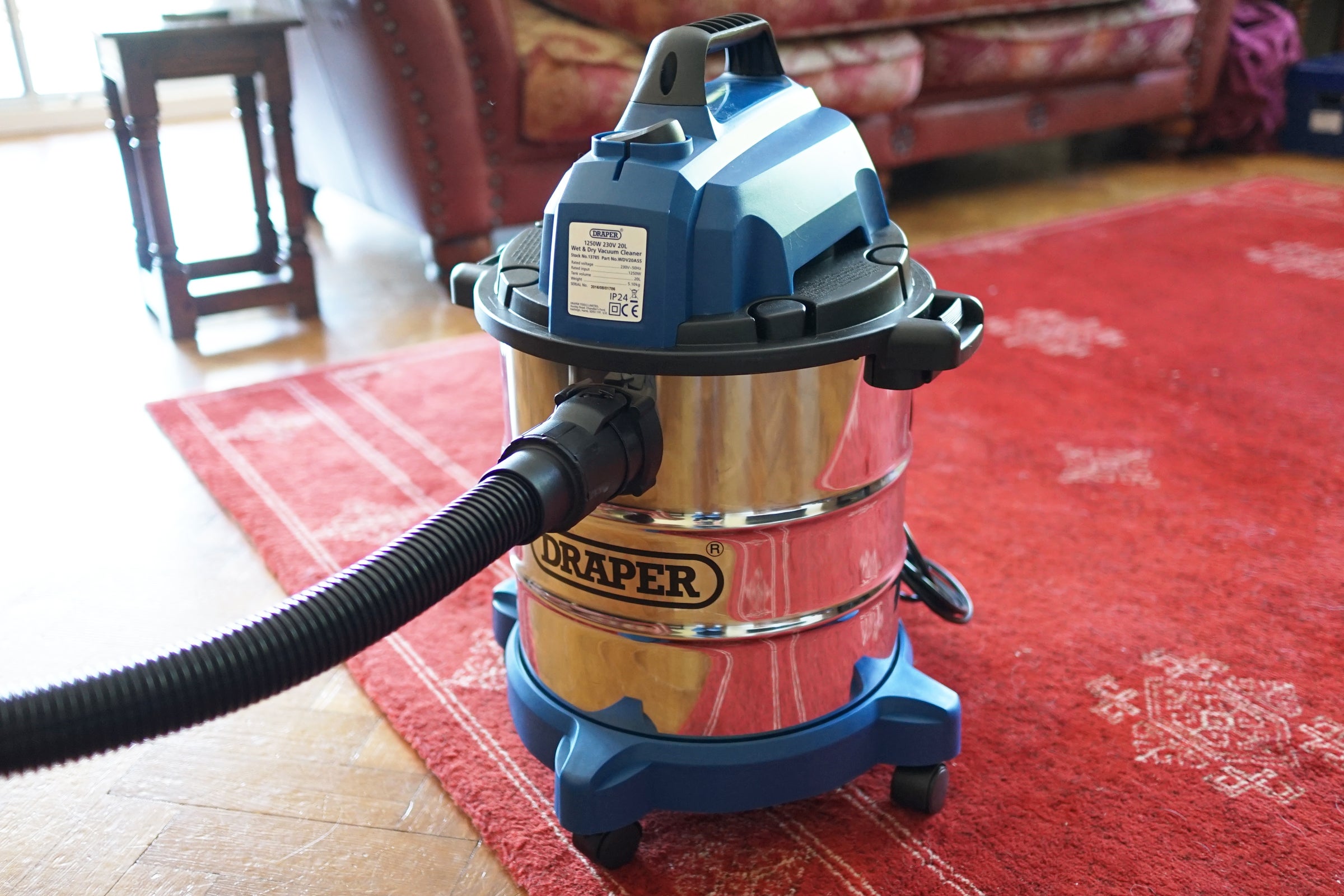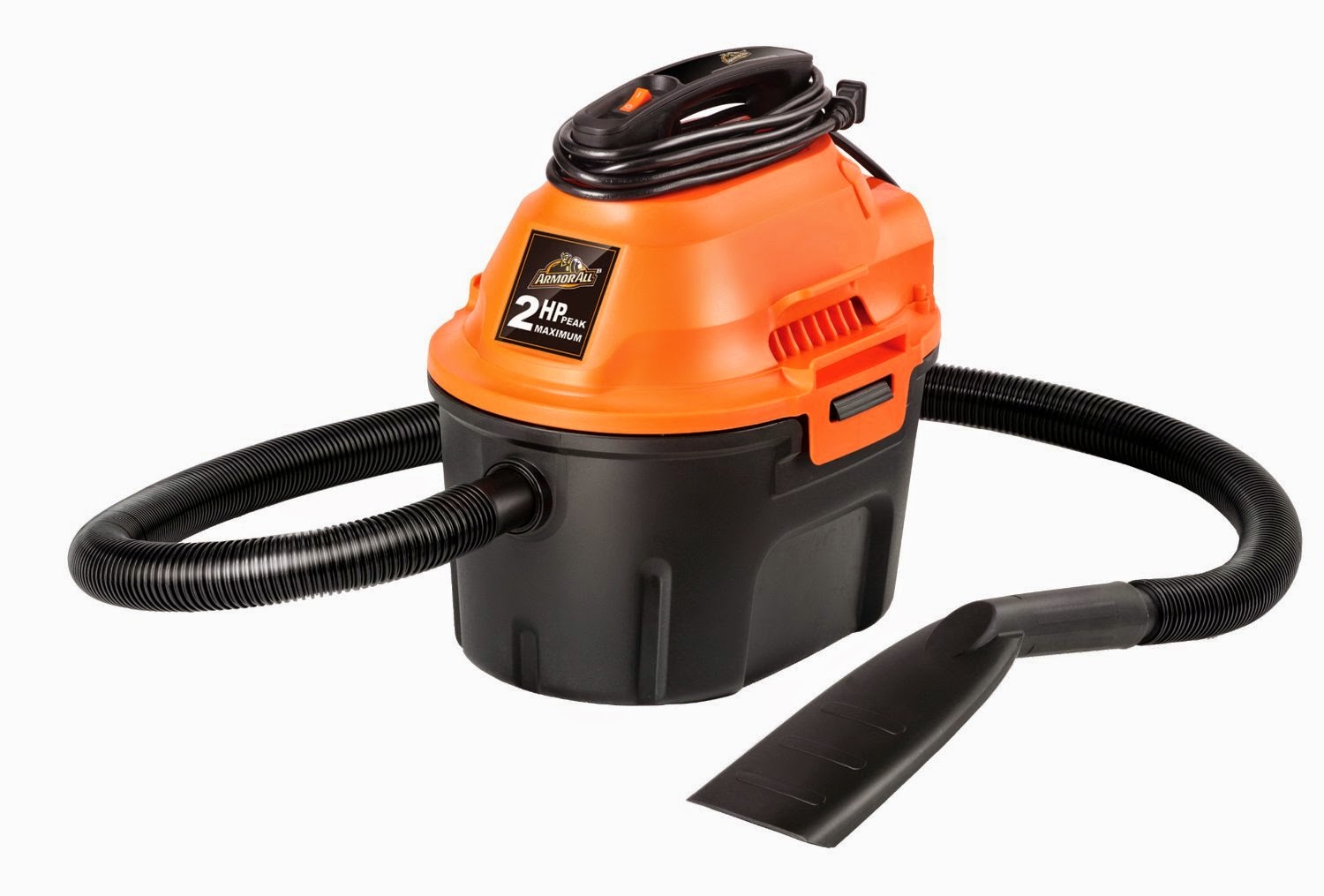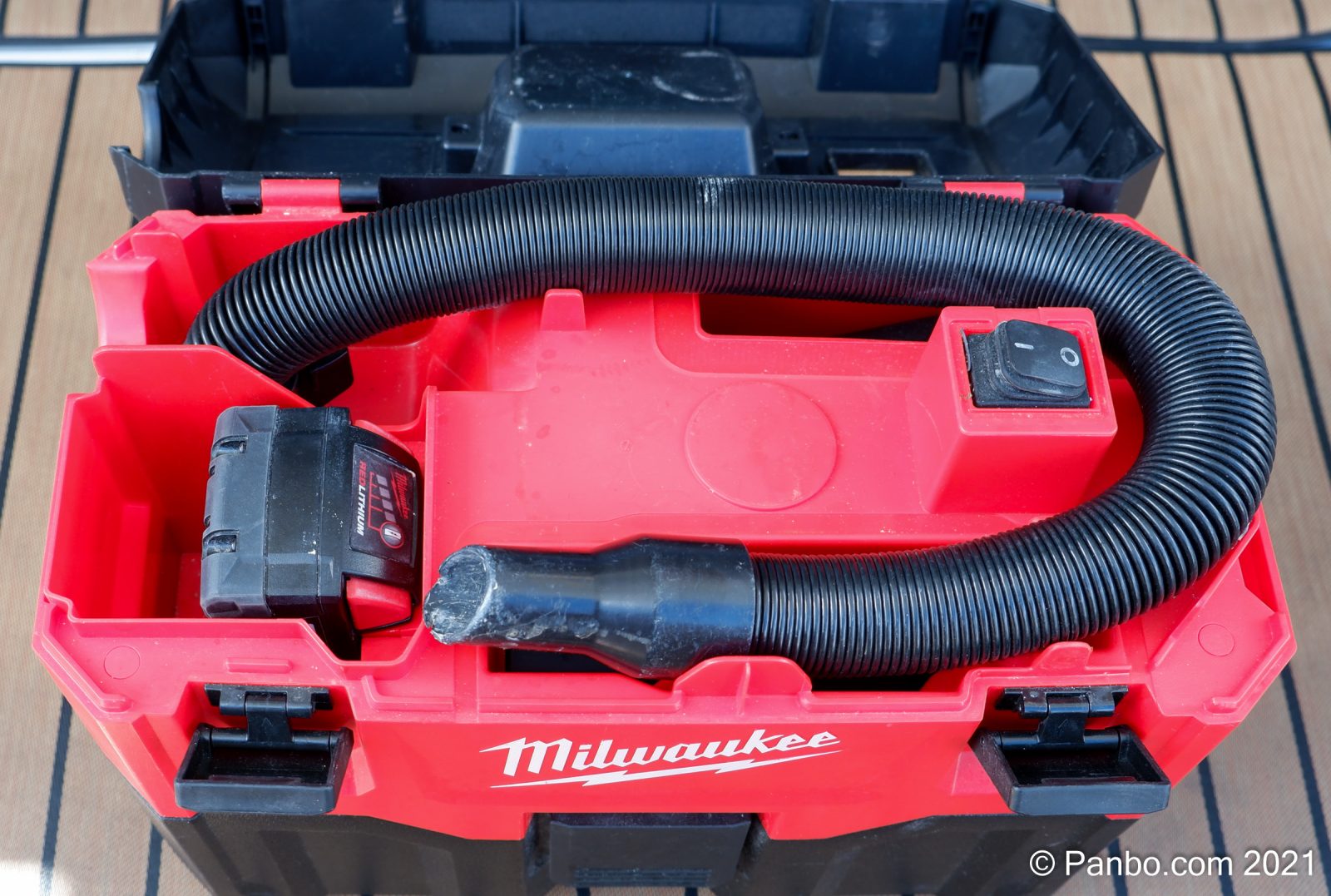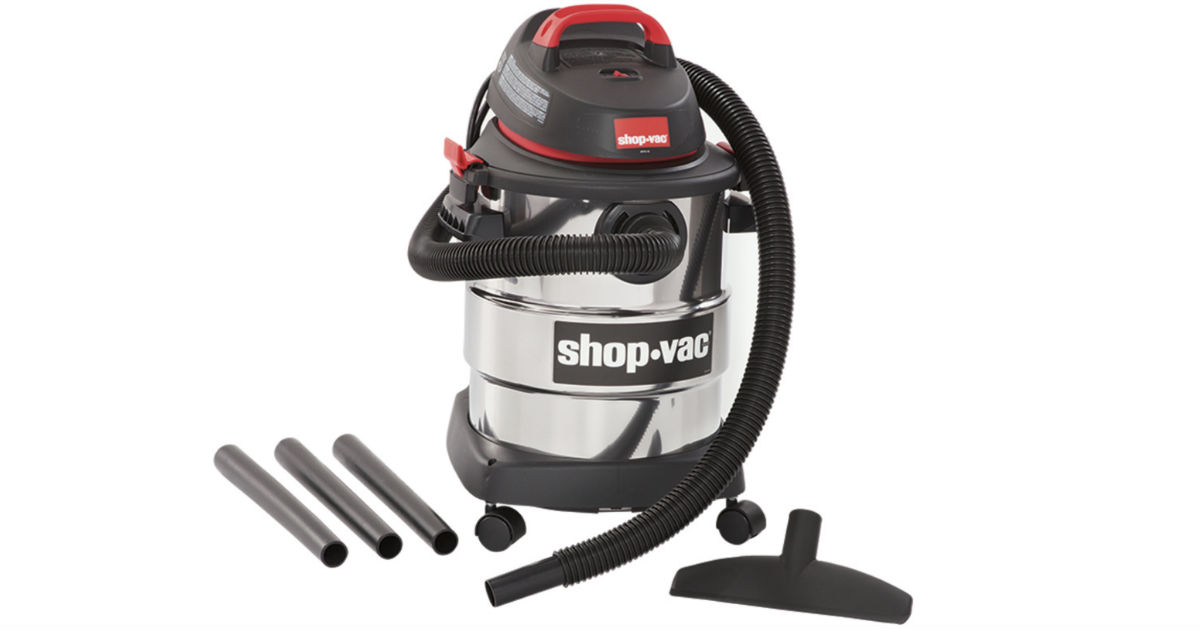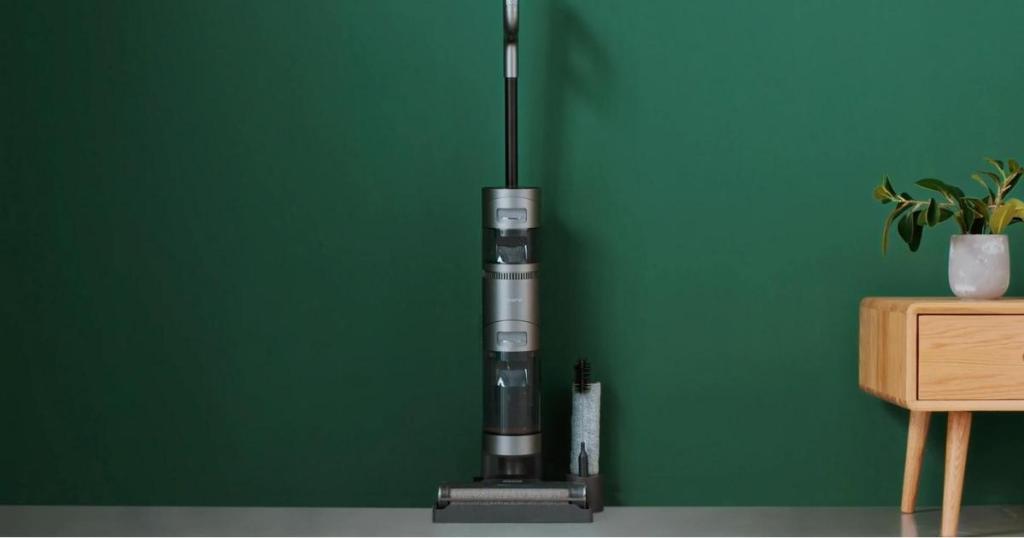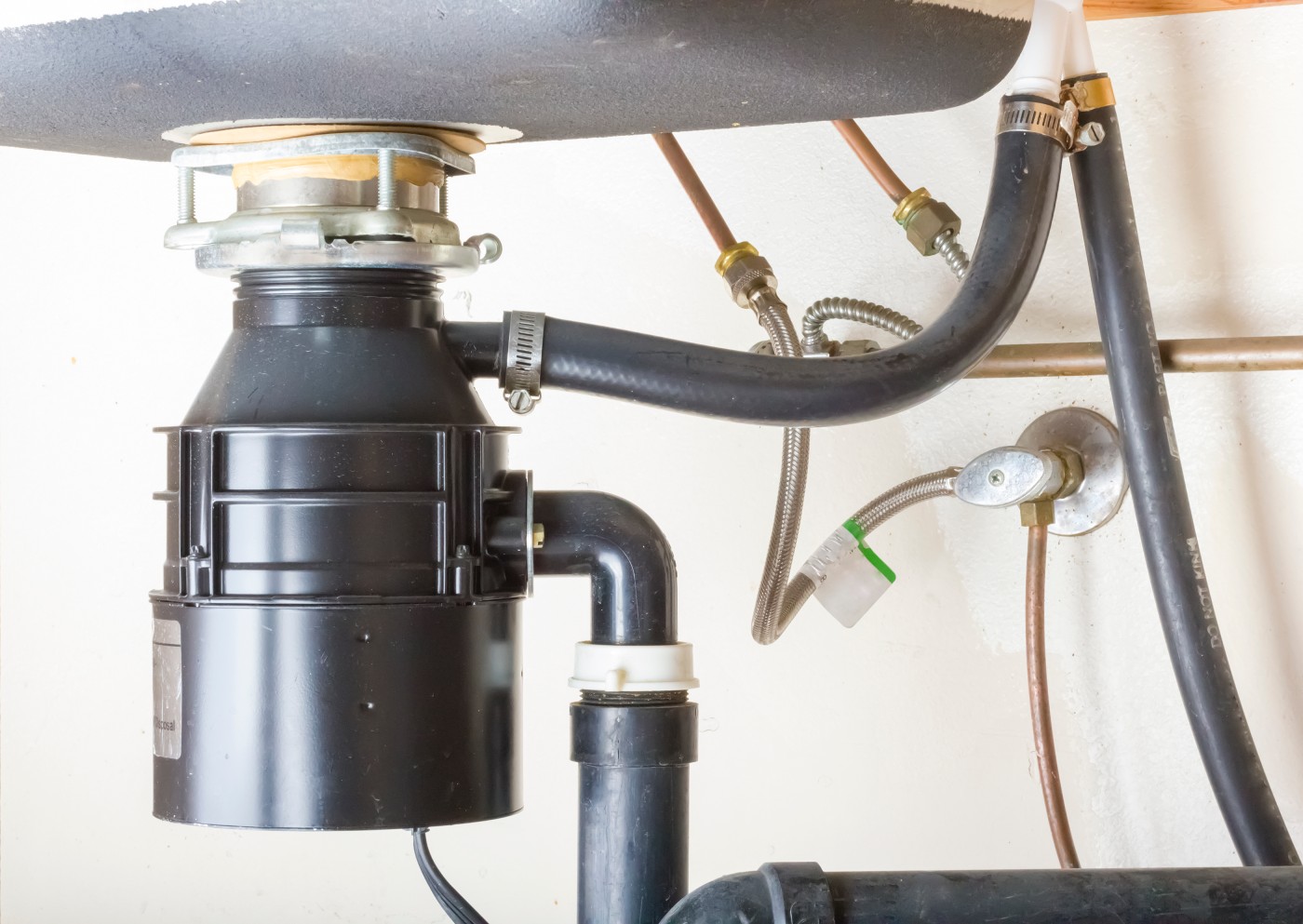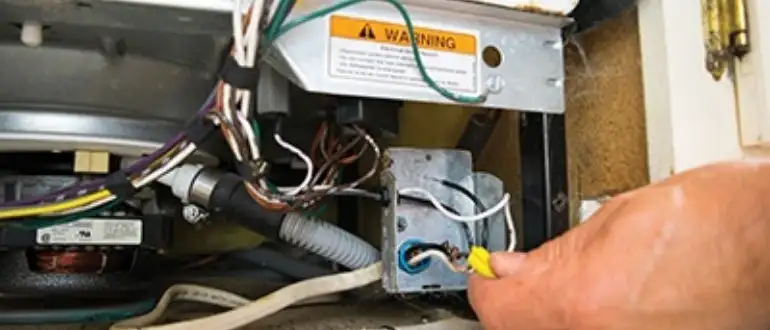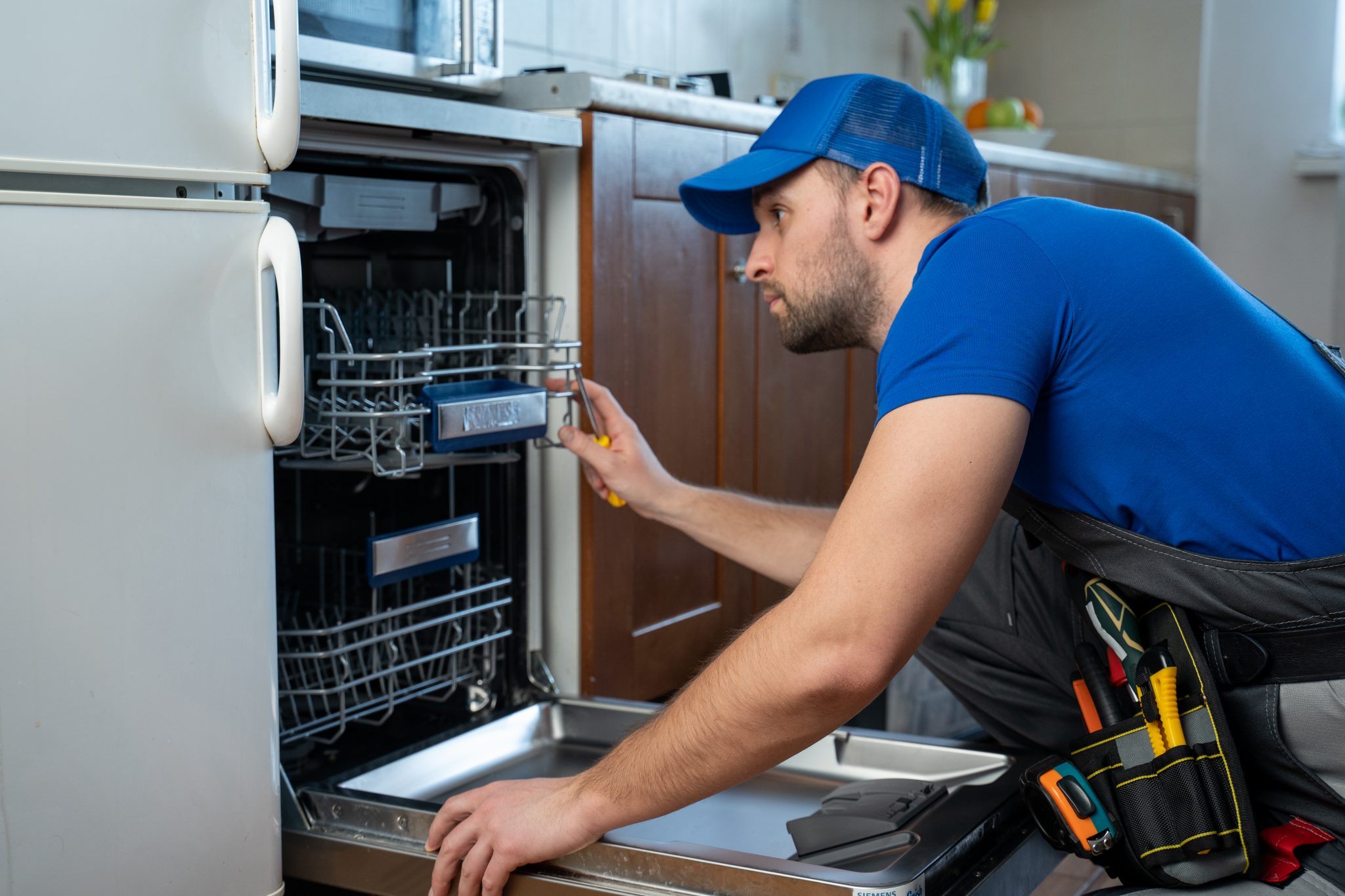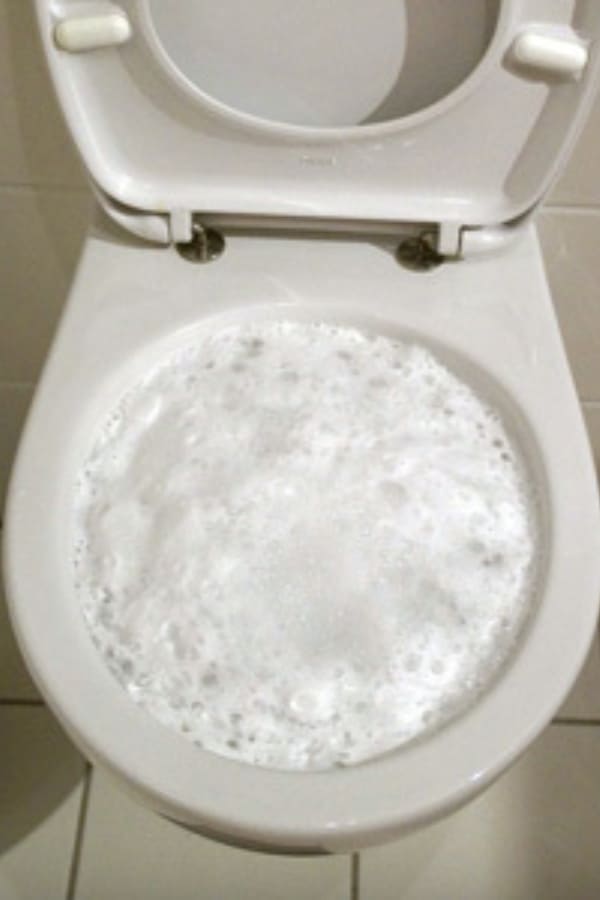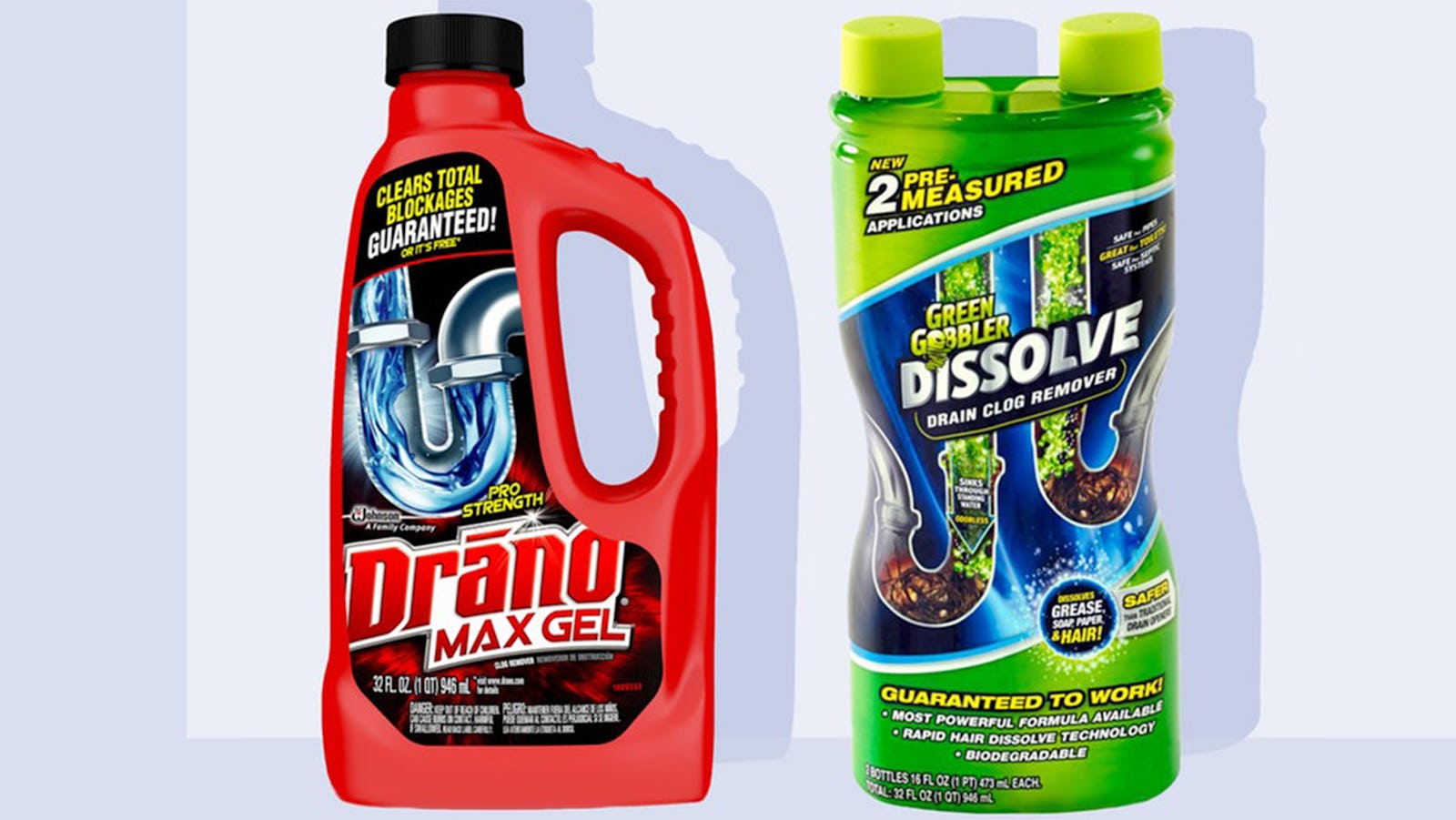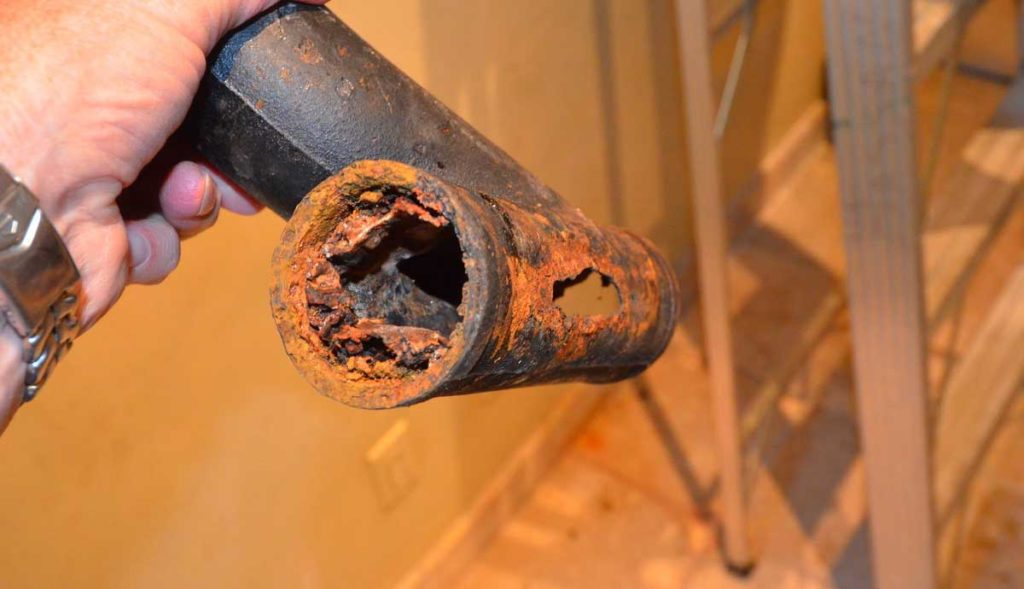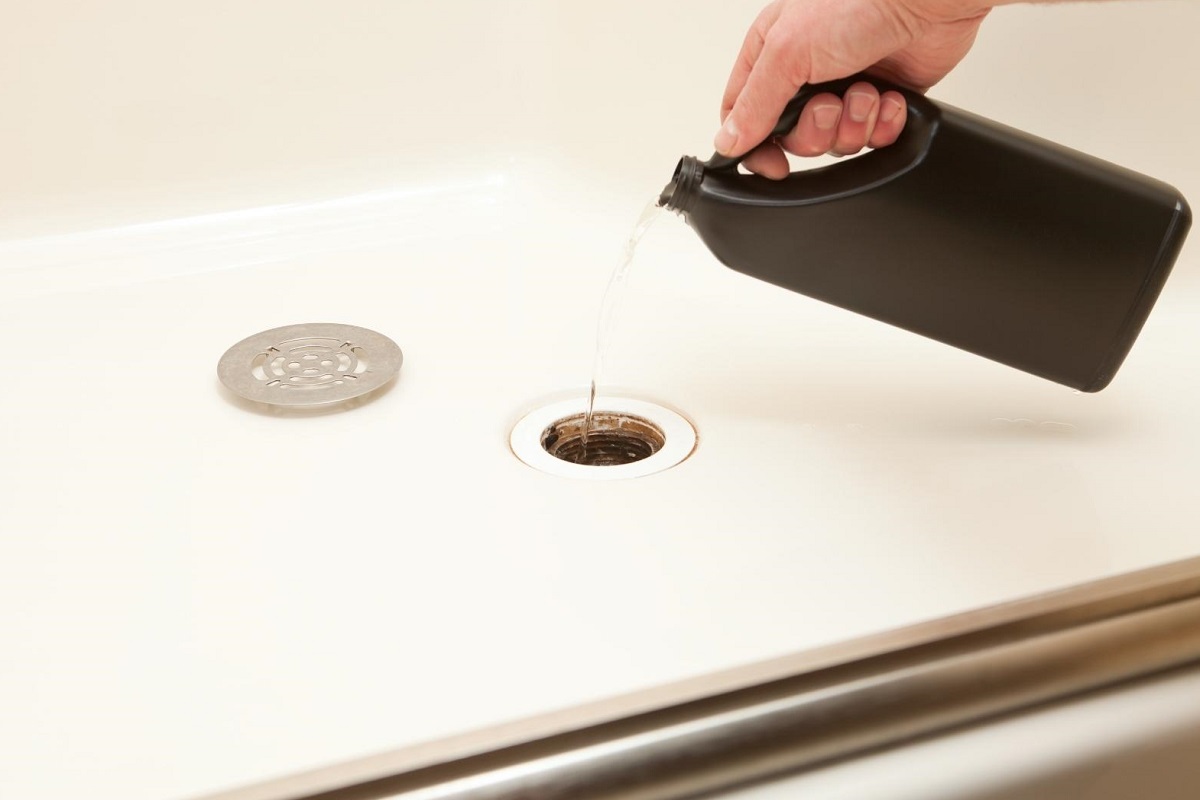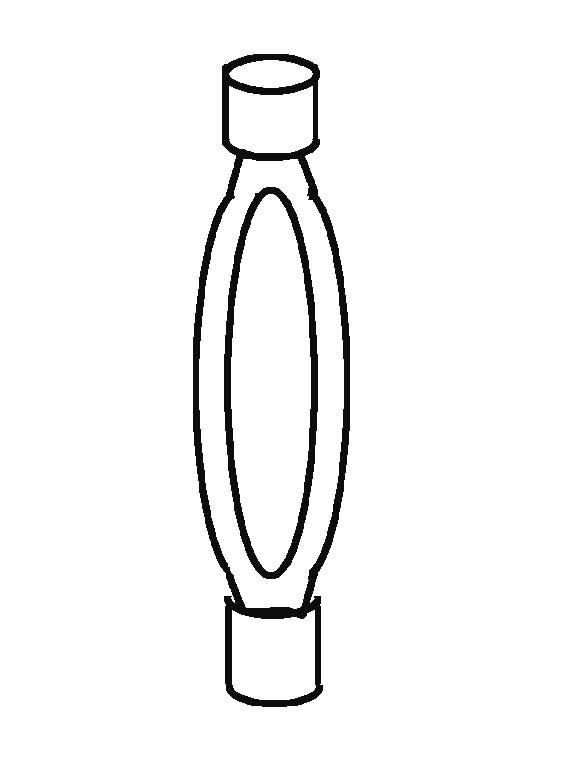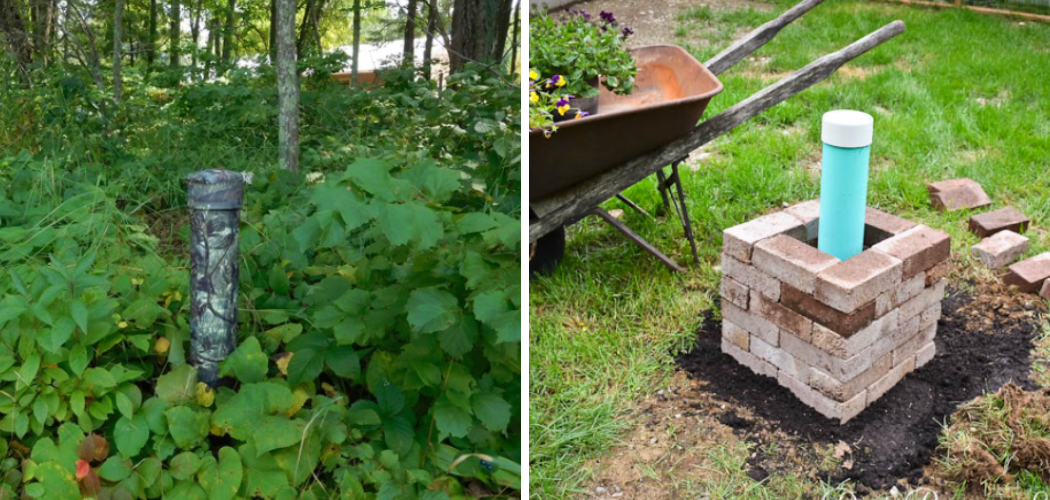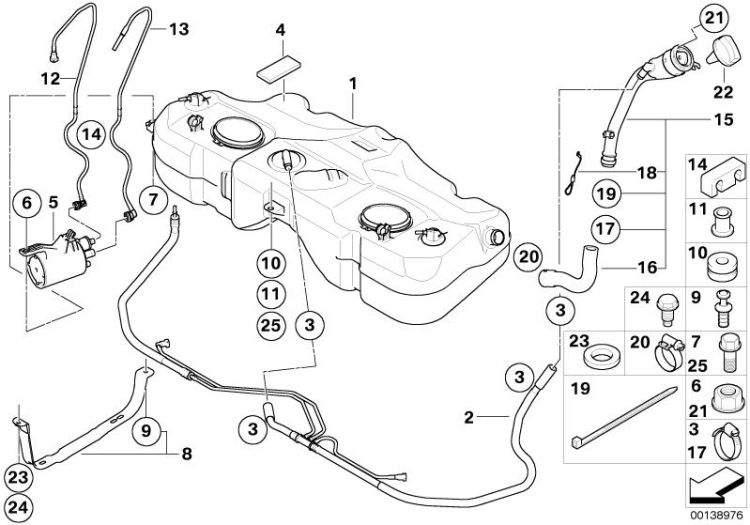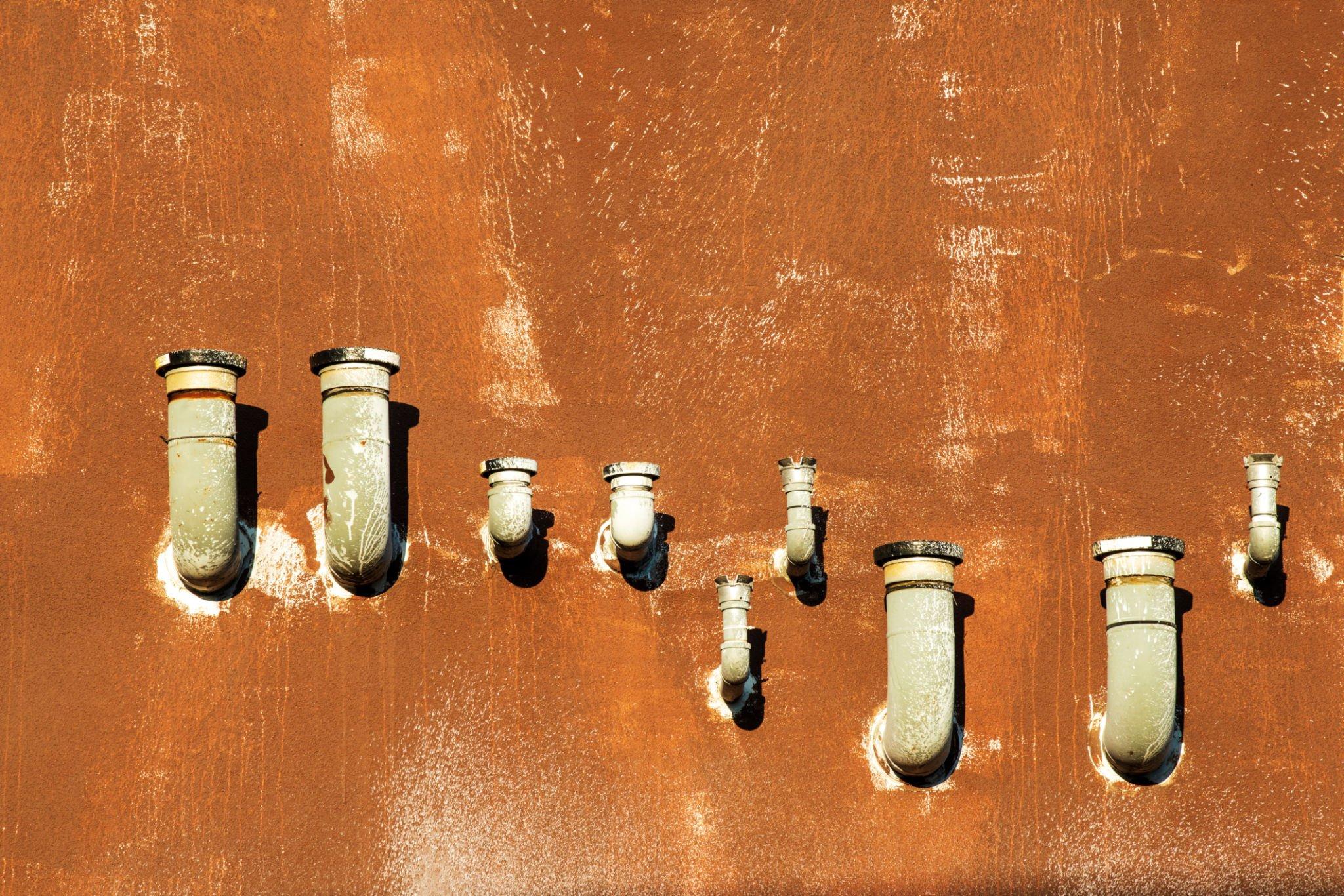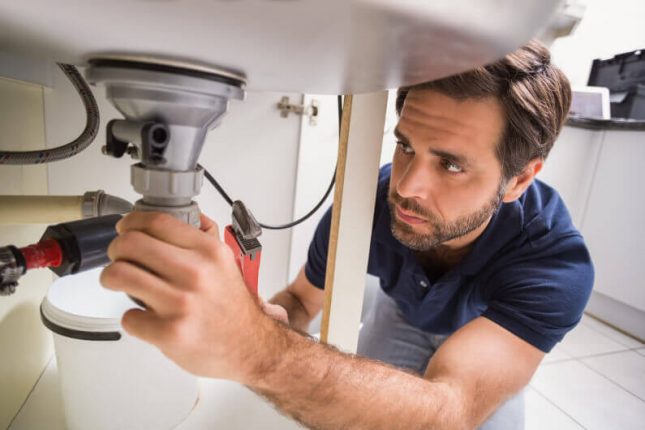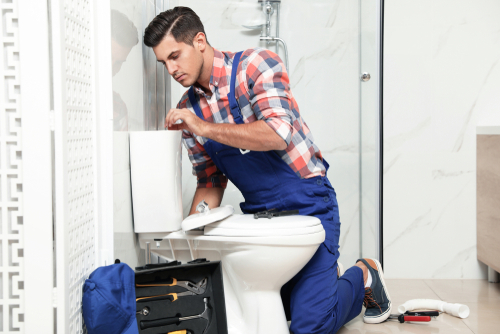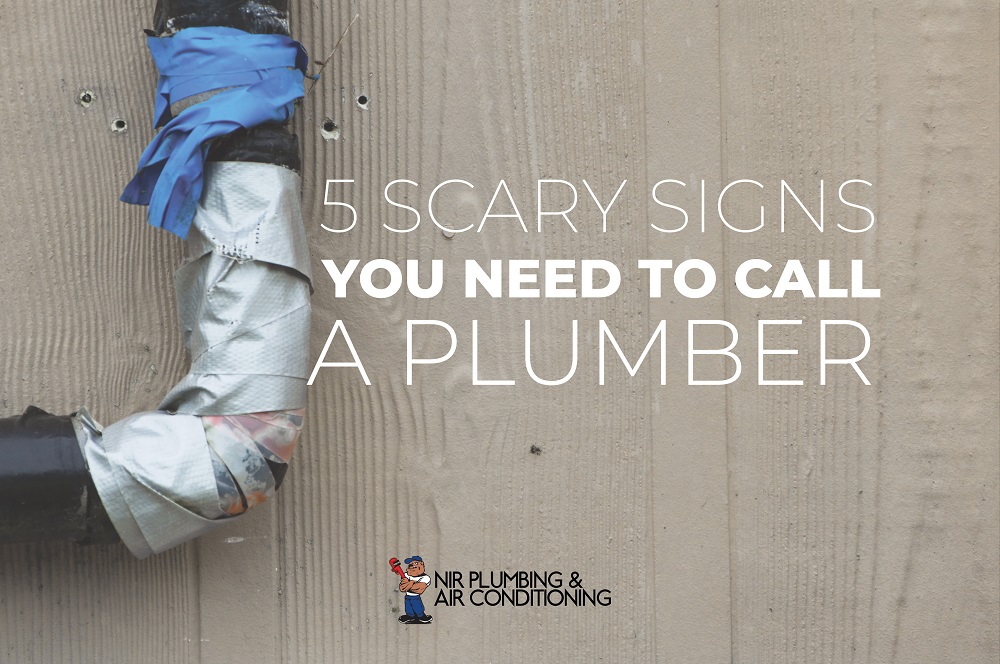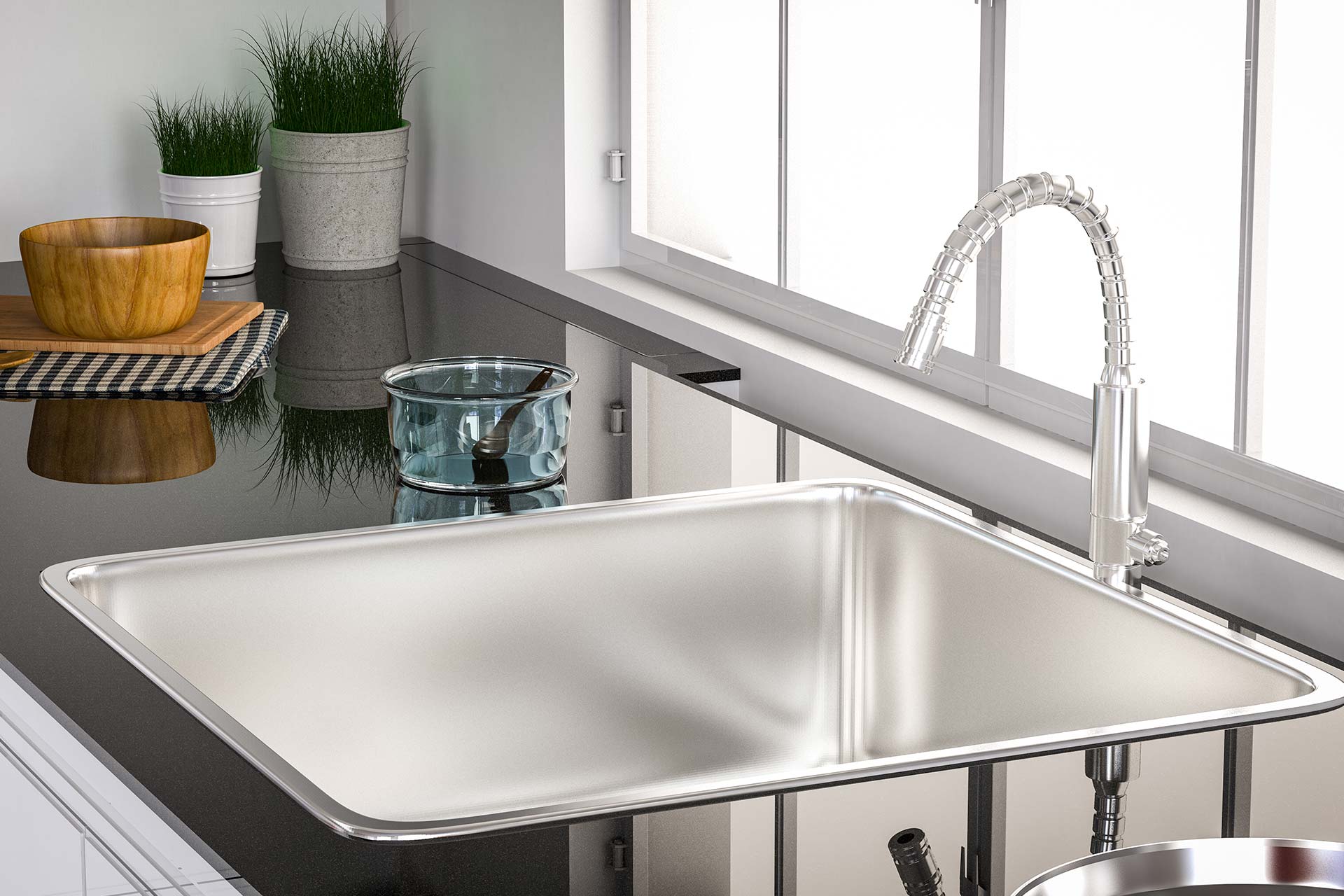One of the most common causes of a kitchen sink not draining is a clogged garbage disposal. Food particles, grease, and other debris can build up in the disposal, causing it to become clogged and preventing water from flowing through. To check if this is the issue, turn off the disposal and use a flashlight to look down the drain. If you see any food or debris, use tongs or pliers to remove it. You can also try running cold water and turning on the disposal to see if it helps clear the clog.1. Check the garbage disposal
If the garbage disposal doesn't seem to be the problem, try using a plunger to clear the clog. Fill the sink with enough water to cover the plunger and place it over the drain. Push down and pull up quickly to create suction and try to dislodge the clog. You may need to repeat this process a few times for it to be effective.2. Use a plunger
If the plunger doesn't work, a drain snake may be a more effective tool for removing the clog. Insert the snake into the drain and twist it as you push it through the pipes. This will help to break up and remove any clogs. You can also try using a wire hanger if you don't have a drain snake on hand.3. Try a drain snake
A natural and effective way to unclog a drain is by using a mixture of baking soda and vinegar. Pour a cup of baking soda down the drain, followed by a cup of vinegar. Let it sit for a few minutes before pouring hot water down the drain to flush out the clog. The chemical reaction between the baking soda and vinegar can help to break up and dissolve the clog.4. Use a mixture of baking soda and vinegar
The P-trap, or U-shaped pipe under the sink, can also become clogged with debris. Place a bucket under the P-trap to catch any water and then use pliers to loosen the nuts and remove the trap. Clean out any debris and then put the trap back in place. This should help to clear the clog and allow water to flow freely again.5. Check the P-trap
If you have a wet/dry vacuum, you can use it to help remove a clog from your kitchen sink. First, place a rag over the overflow opening and then create a seal around the vacuum hose and the drain. Turn on the vacuum and let it run for a few minutes to hopefully suck out the clog.6. Use a wet/dry vacuum
If your kitchen sink is connected to a dishwasher, a clog may be caused by a blockage in the dishwasher drain hose. Check to make sure the hose is not kinked or clogged. You can also try disconnecting the hose and running hot water through it to remove any debris.7. Check the dishwasher connection
If all else fails, you may need to use a chemical drain cleaner to help dissolve the clog. Be sure to follow the instructions carefully and use caution when handling these products. They can be harmful to skin and eyes, so wear gloves and safety glasses. If the clog is still not cleared after using a drain cleaner, it may be time to call a professional plumber.8. Use a chemical drain cleaner
The vent pipe allows air to escape from the plumbing system and if it becomes clogged, it can cause water to back up in your sink. Check the vent pipe on the roof and make sure it is not blocked by debris or nests from birds or other animals. Use a plumber's snake or pressure washer to clear any obstructions.9. Check the vent pipe
If none of these methods seem to be working, it may be time to call in a professional plumber. They have the tools and expertise to diagnose and fix the issue quickly and efficiently. Plus, they can help prevent future clogs and keep your kitchen sink draining properly. Don't let a clogged kitchen sink ruin your day. Try these tips to unclog your drain and get your sink back to working order. Remember to regularly clean your sink and dispose of food scraps properly to help prevent future clogs. And if all else fails, don't hesitate to call in a professional for help.10. Call a plumber
Why Your Kitchen Sink Won't Drain: A Closer Look at the Common Culprits

Understanding the Anatomy of Your Kitchen Sink
 As a homeowner, there are few things more frustrating than a kitchen sink that won't drain. Not only does it disrupt your daily routine, but it also creates a potential safety hazard and can lead to costly repairs if left untreated. Before we dive into the possible reasons why your kitchen sink won't drain, let's first understand the anatomy of your sink.
Your kitchen sink is made up of several components: the sink basin, drain pipe, P-trap, and garbage disposal (if applicable). The sink basin is the main area where you wash dishes and vegetables, while the drain pipe and P-trap are responsible for carrying the wastewater away. The garbage disposal, if present, helps grind up food scraps before they enter the drain pipe.
As a homeowner, there are few things more frustrating than a kitchen sink that won't drain. Not only does it disrupt your daily routine, but it also creates a potential safety hazard and can lead to costly repairs if left untreated. Before we dive into the possible reasons why your kitchen sink won't drain, let's first understand the anatomy of your sink.
Your kitchen sink is made up of several components: the sink basin, drain pipe, P-trap, and garbage disposal (if applicable). The sink basin is the main area where you wash dishes and vegetables, while the drain pipe and P-trap are responsible for carrying the wastewater away. The garbage disposal, if present, helps grind up food scraps before they enter the drain pipe.
The Common Culprits Behind a Clogged Kitchen Sink
 Now that we have a better understanding of how your kitchen sink works, let's take a look at the main reasons why it may not be draining properly.
1. Food debris and grease buildup:
One of the most common reasons for a clogged kitchen sink is the buildup of food debris and grease. Over time, these substances can accumulate in the drain pipe and P-trap, causing a blockage and preventing water from draining properly.
2. Foreign objects:
Another culprit for a clogged kitchen sink could be foreign objects such as utensils, bottle caps, or even small toys. These items can accidentally fall into the sink and get lodged in the drain pipe, causing a blockage.
3. Broken or clogged garbage disposal:
If your kitchen sink has a garbage disposal, it could be the source of the problem. A broken or clogged garbage disposal can prevent water from draining properly, resulting in a backed-up sink.
4. Old and worn out pipes:
Over time, the drain pipe and P-trap can become corroded or damaged, leading to a buildup of debris and causing a clog in your kitchen sink.
Now that we have a better understanding of how your kitchen sink works, let's take a look at the main reasons why it may not be draining properly.
1. Food debris and grease buildup:
One of the most common reasons for a clogged kitchen sink is the buildup of food debris and grease. Over time, these substances can accumulate in the drain pipe and P-trap, causing a blockage and preventing water from draining properly.
2. Foreign objects:
Another culprit for a clogged kitchen sink could be foreign objects such as utensils, bottle caps, or even small toys. These items can accidentally fall into the sink and get lodged in the drain pipe, causing a blockage.
3. Broken or clogged garbage disposal:
If your kitchen sink has a garbage disposal, it could be the source of the problem. A broken or clogged garbage disposal can prevent water from draining properly, resulting in a backed-up sink.
4. Old and worn out pipes:
Over time, the drain pipe and P-trap can become corroded or damaged, leading to a buildup of debris and causing a clog in your kitchen sink.
How to Fix a Clogged Kitchen Sink
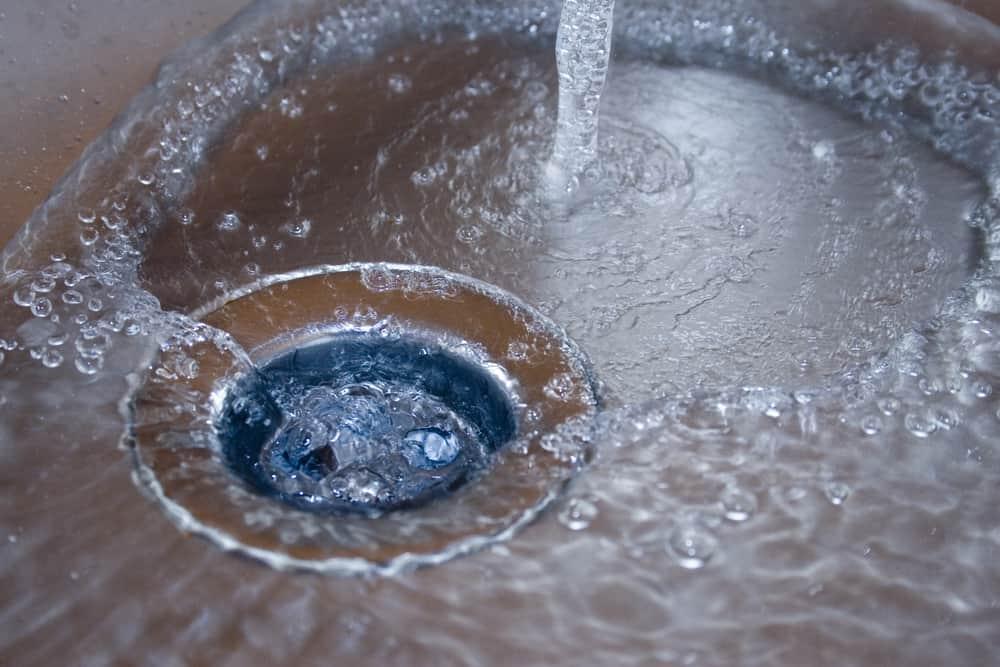 If your kitchen sink won't drain, there are a few things you can try before calling a professional plumber. Here are some simple steps you can take to unclog your kitchen sink:
1. Use a plunger:
A plunger can be an effective tool for unclogging a kitchen sink. Make sure to cover the overflow hole with a wet cloth before plunging to create a stronger suction.
2. Try a homemade solution:
You can also try pouring a mixture of hot water, baking soda, and vinegar down the drain to help break up any debris or grease buildup.
3. Use a plumbing snake:
If the clog is deeper in the drain pipe, a plumbing snake can help break it up and clear the blockage.
4. Call a professional plumber:
If all else fails, it's best to call a professional plumber to assess the issue and provide a more permanent solution.
If your kitchen sink won't drain, there are a few things you can try before calling a professional plumber. Here are some simple steps you can take to unclog your kitchen sink:
1. Use a plunger:
A plunger can be an effective tool for unclogging a kitchen sink. Make sure to cover the overflow hole with a wet cloth before plunging to create a stronger suction.
2. Try a homemade solution:
You can also try pouring a mixture of hot water, baking soda, and vinegar down the drain to help break up any debris or grease buildup.
3. Use a plumbing snake:
If the clog is deeper in the drain pipe, a plumbing snake can help break it up and clear the blockage.
4. Call a professional plumber:
If all else fails, it's best to call a professional plumber to assess the issue and provide a more permanent solution.
Preventing Future Kitchen Sink Clogs
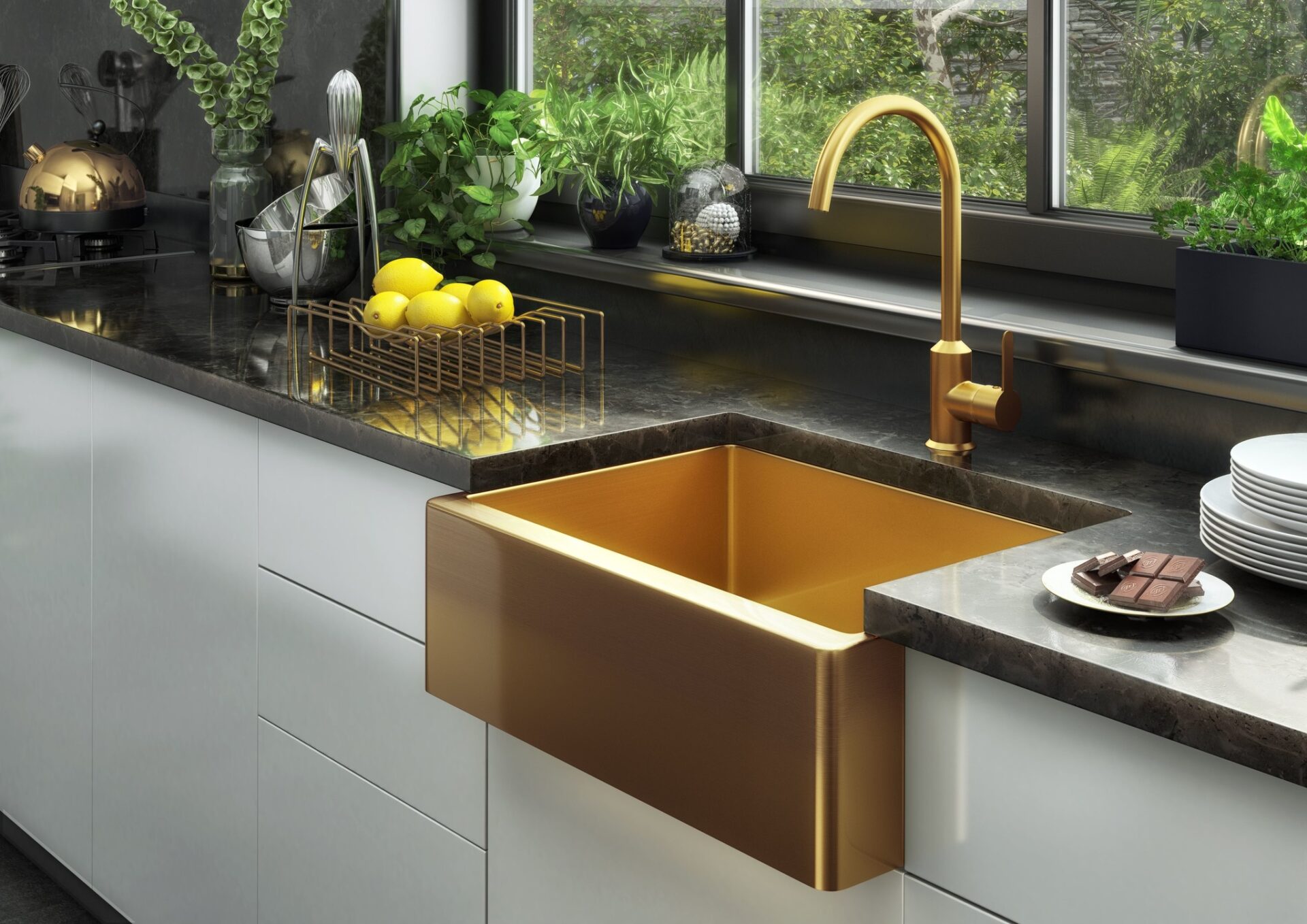 To avoid dealing with a clogged kitchen sink in the future, it's important to take preventative measures. Here are some tips to keep your kitchen sink draining smoothly:
1. Scrape off excess food:
Before washing dishes, make sure to scrape off any excess food into the trash to prevent it from going down the drain.
2. Avoid pouring grease down the drain:
Grease can solidify in the drain pipe and cause a blockage. Instead, pour it into a container and dispose of it in the trash.
3. Use a drain strainer:
Placing a drain strainer over your sink can help catch any food debris and prevent it from going down the drain.
In conclusion, a kitchen sink that won't drain can be a frustrating and inconvenient problem. By understanding the common culprits and taking preventative measures, you can keep your kitchen sink functioning properly and avoid costly repairs in the future.
To avoid dealing with a clogged kitchen sink in the future, it's important to take preventative measures. Here are some tips to keep your kitchen sink draining smoothly:
1. Scrape off excess food:
Before washing dishes, make sure to scrape off any excess food into the trash to prevent it from going down the drain.
2. Avoid pouring grease down the drain:
Grease can solidify in the drain pipe and cause a blockage. Instead, pour it into a container and dispose of it in the trash.
3. Use a drain strainer:
Placing a drain strainer over your sink can help catch any food debris and prevent it from going down the drain.
In conclusion, a kitchen sink that won't drain can be a frustrating and inconvenient problem. By understanding the common culprits and taking preventative measures, you can keep your kitchen sink functioning properly and avoid costly repairs in the future.



